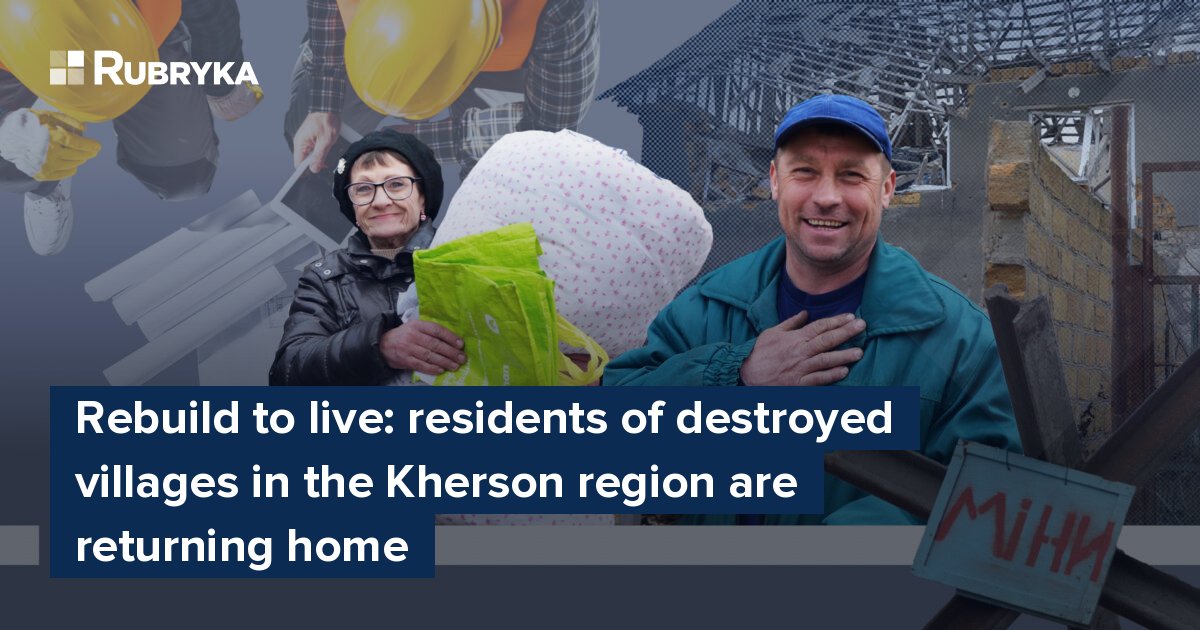
In March 2022, after seizing almost the entire territory of the Kherson region, the russian army moved to the Mykolaiv region to further break through to Odesa. However, the occupiers were forced to retreat after powerful resistance from the Armed Forces of Ukraine and Territorial Defense units.
For many months, the Kherson and Mykolaiv regions' administrative border was on the front line. Dozens of villages became a gray zone where the occupation troops and Ukrainian forces periodically traded gains and losses.
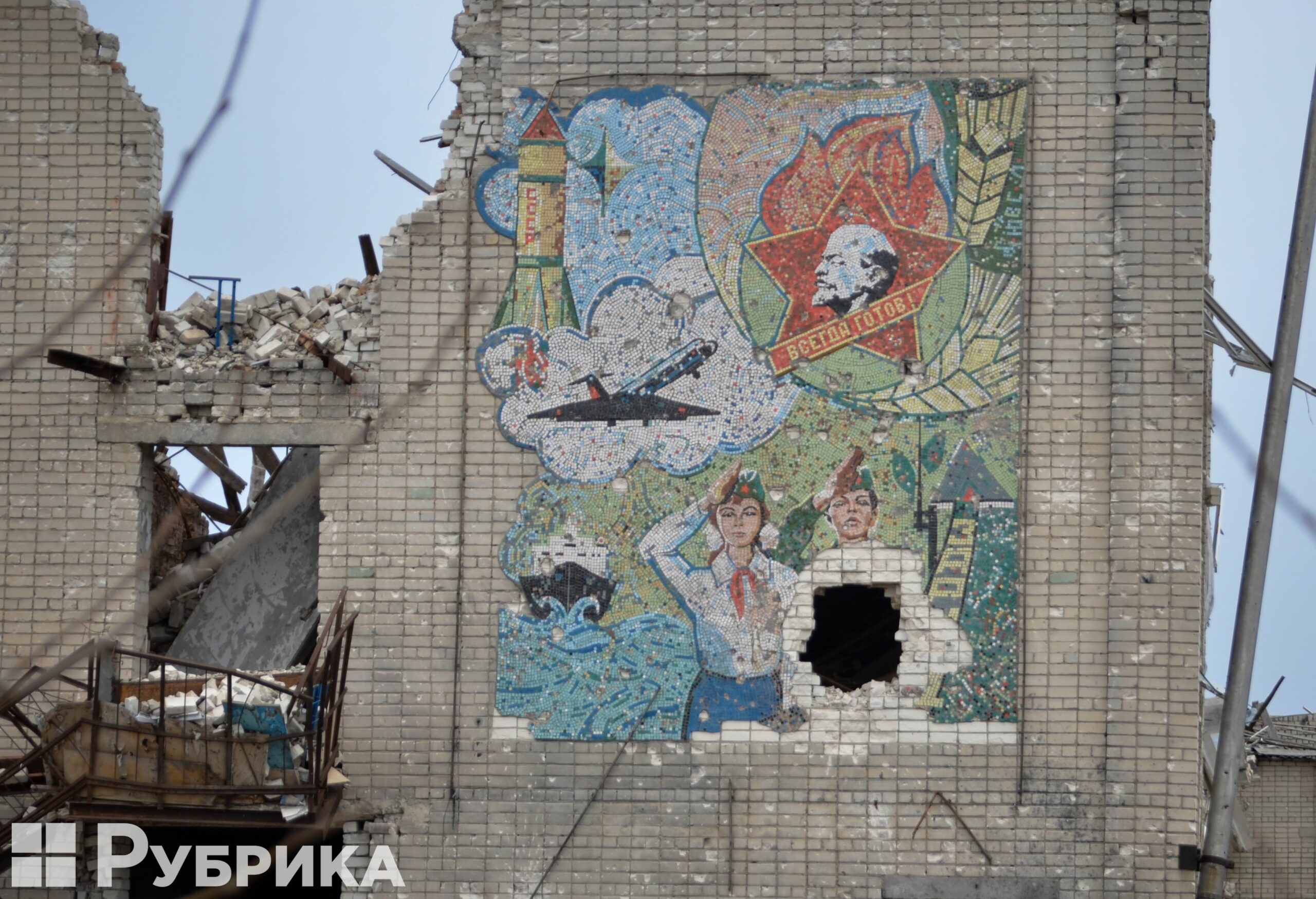
A school in the Oleksandivka village of Kherson region was destroyed.
From the first days of russia's full-scale invasion, people suffered from constant shelling, lived in cellars, or were forced to flee, leaving everything behind. After the liberation of the right bank of the Kherson region, the world saw the tragic aftermath of russian occupation. There is still no electricity or water in most places, shops and pharmacies are not working, yards are littered with remnants of ammunition, and people's homes are riddled with hundreds of pieces of debris or completely destroyed.
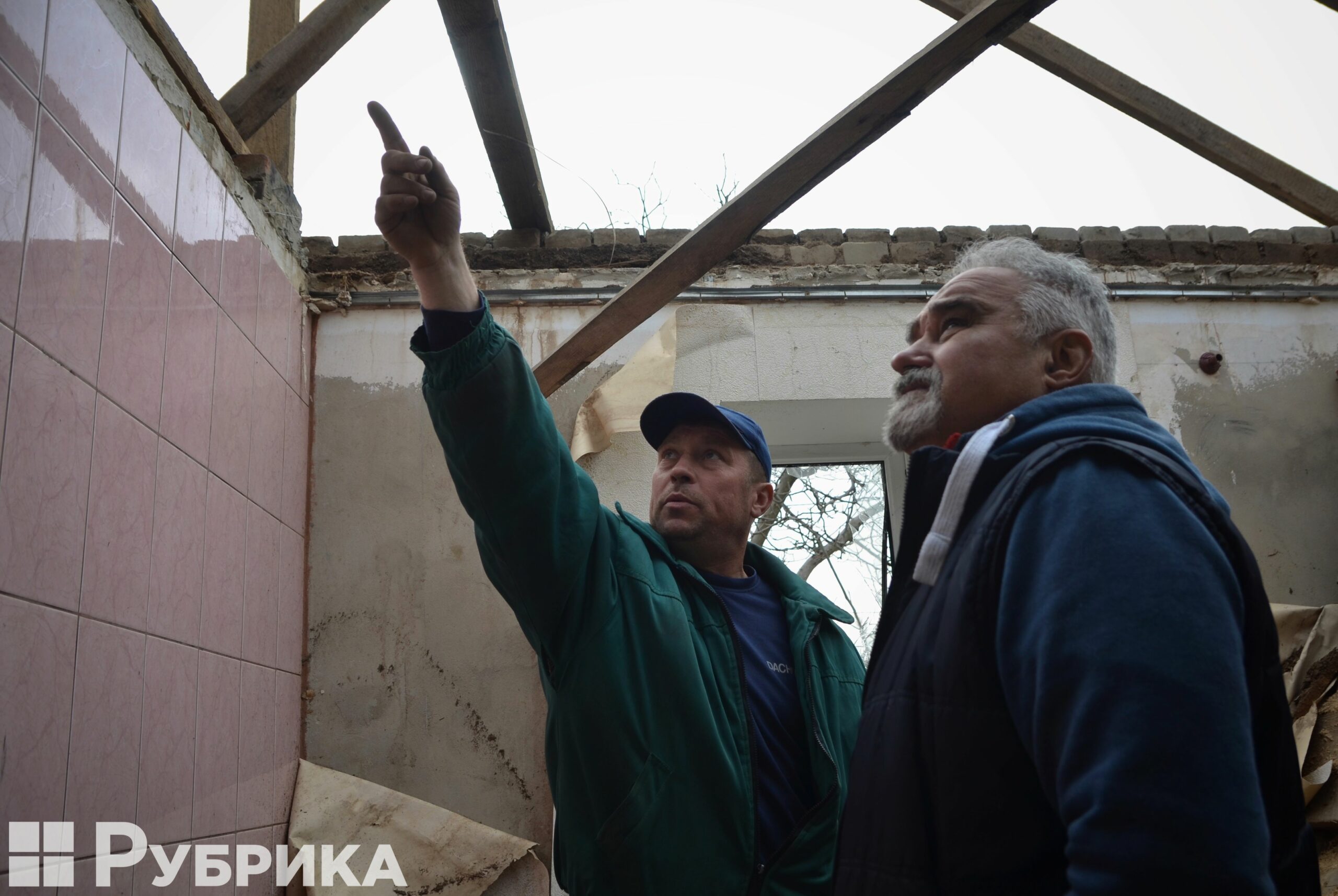
Mykola Balan from Blahodatne shows what happened to his house.
Despite this, locals are determined to return home. They want to rebuild their houses, cooperate with volunteers and their fellow villagers, and are seeking support from international organizations to purchase building materials. Rubryka reporters visited several villages of the Kherson region which are slowly recovering from the war, despite hostilities still ongoing not far from their settlements.
"There were three powerful strikes there"
The road to Mykolaiv is riddled with tank tracks — a characteristic feature of front-line territories, where hundreds of heavily armored vehicles passed in 2022. On both sides of the highway lie the remains of russian checkpoints, strewn with shrapnel and ammunition boxes.
The NGO "Young – Initiative" is an organization from Skadovsk, in the Kherson region, which helps residents of destroyed villages to rebuild their homes. While russia continues to occupy Skadovsk itself, volunteers take care of the liberated communities. Currently, they are concentrated on Chornobayivska and Stanislavska.
"We drove through the most destroyed villages and determined the priorities. Destroyed roofs were the main concern," Oleksandr Demydenko, the organization representative, explains.
The team provides people with oriented strand board (OSB) plates, aerated concrete, nails, slate, corrugated board, awnings, and mounting foam and gradually organizes work at the facilities. At first, they focused on helping Ukrainian soldiers' families, covered 12 roofs, and restored walls in several houses.
Blahodatne is a small village of only a few streets, located just along the railway that separates the Kherson and Mykolaiv regions.
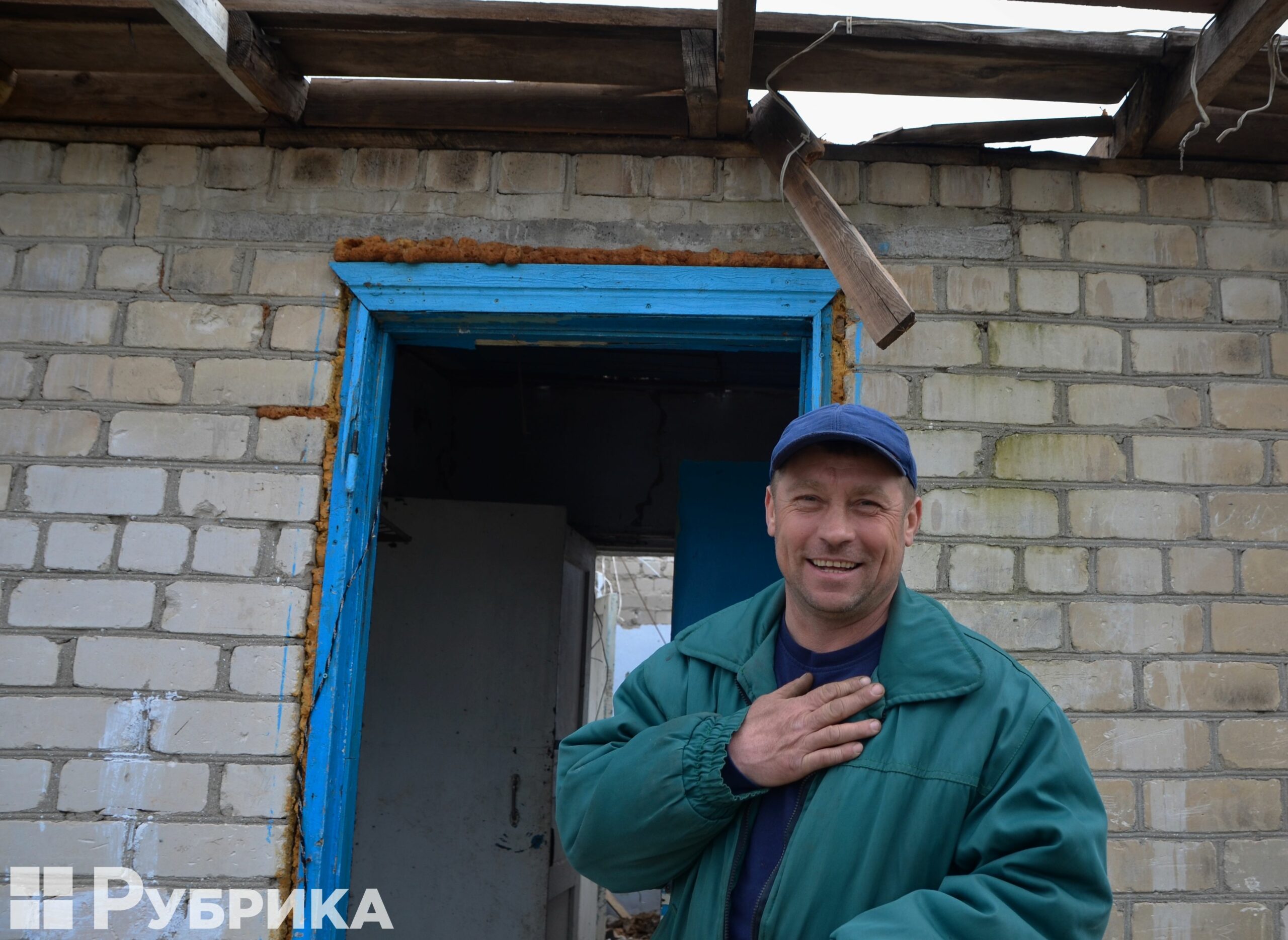
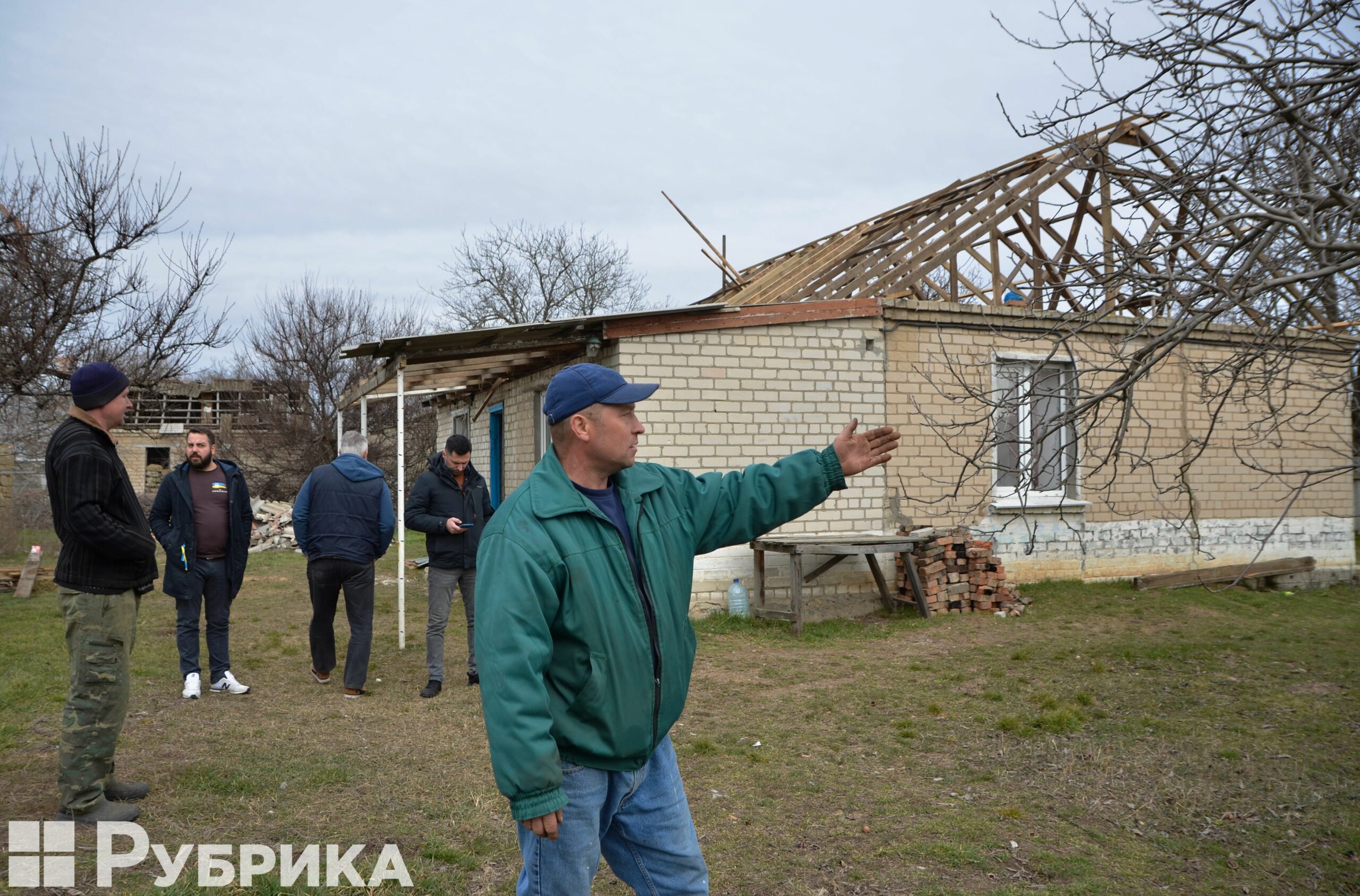
Mykola Balan is a Blahodatne resident whose house was destroyed.
"As you can see, we had three powerful strikes here. There is no roof, no ceiling," Mykola Balan tells Rubryka while showing the tattered remnants of his home. "Chaplain Mykola Viktorovych helped with a metal profile and nails for the roof, and we bought the rest with our own money. I want to rebuild this house so our family can live here again."
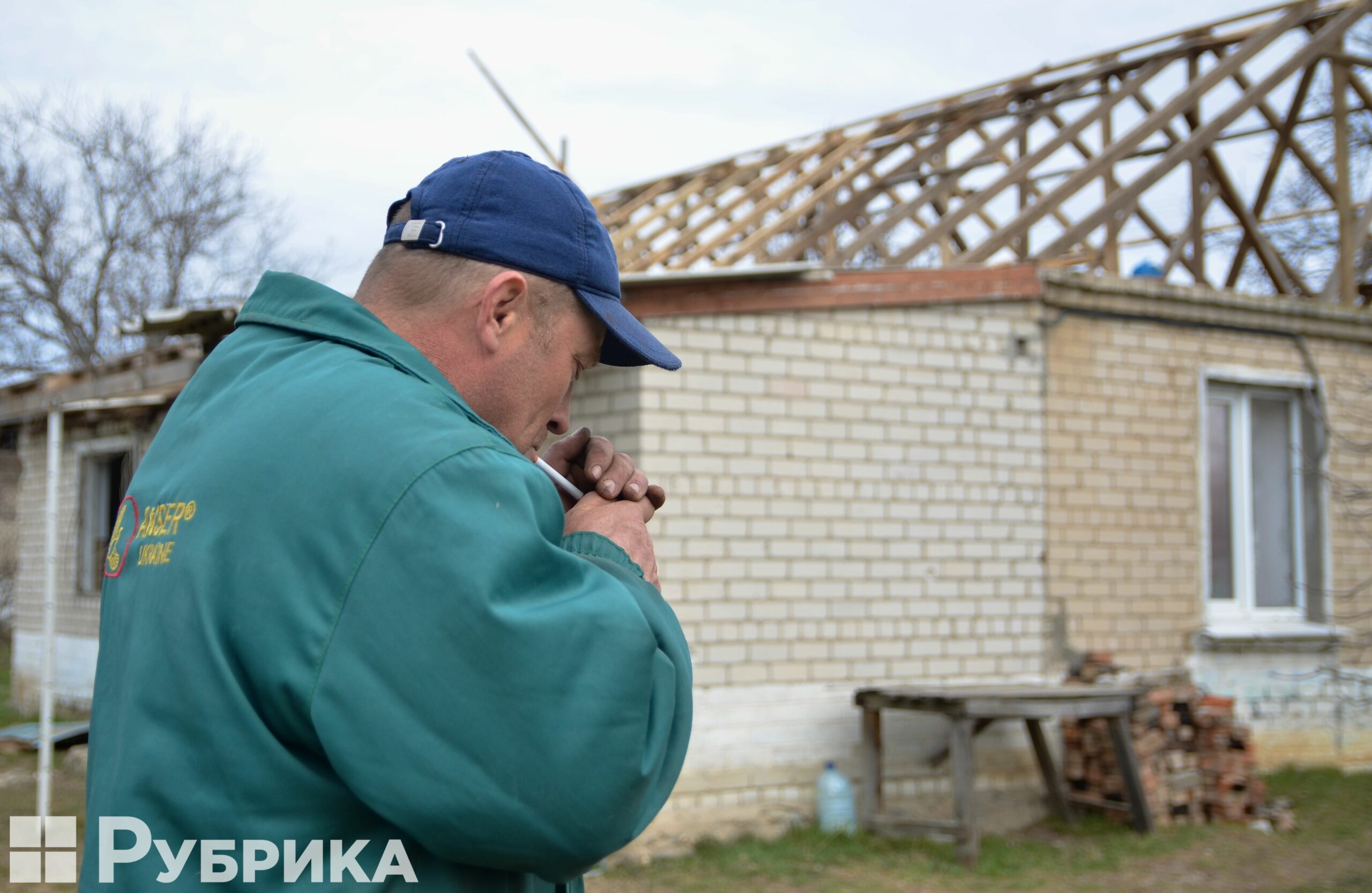
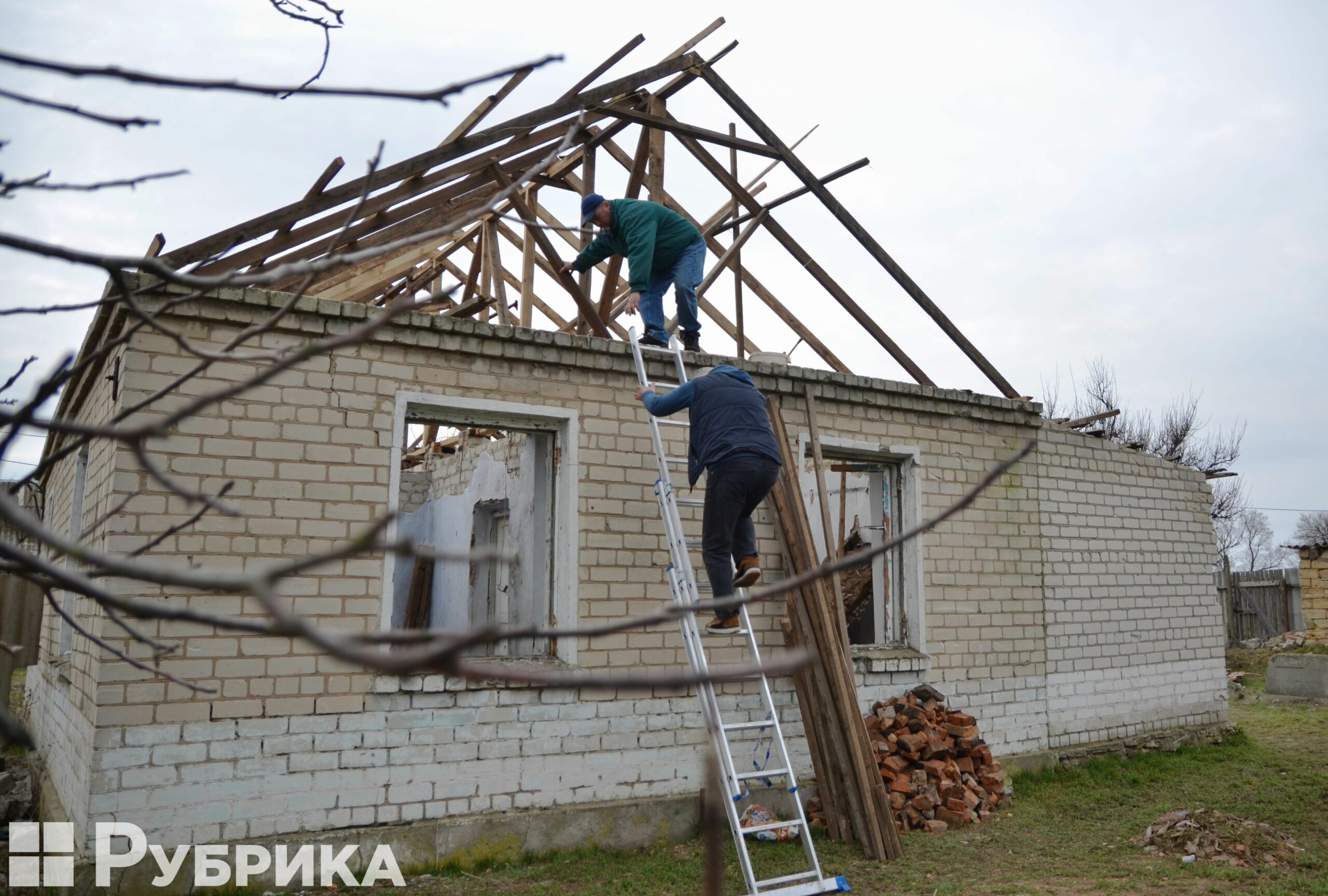
Balan shows his house from the inside, recalling what it looked like before the war and how he wants to repair it. An icon of Christ remains on the windowsill of the children's room, where his daughter's toys are scattered on the floor. Mykola lights another cigarette. Speaking to journalists is important to him, not because it might bring him attention, but simply because he feels warm at the possibility that there are people who care about him and might help.
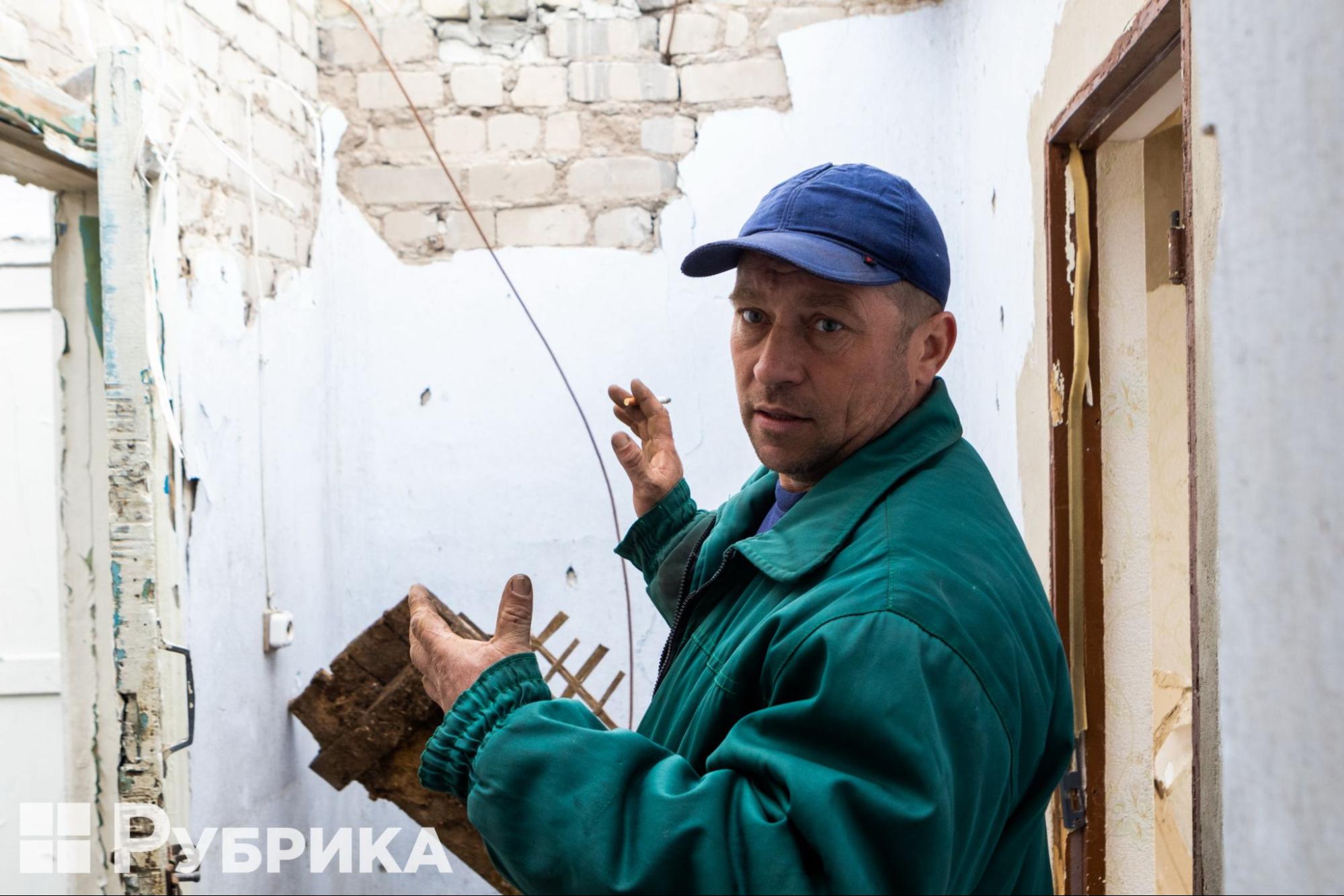
"We will survive"
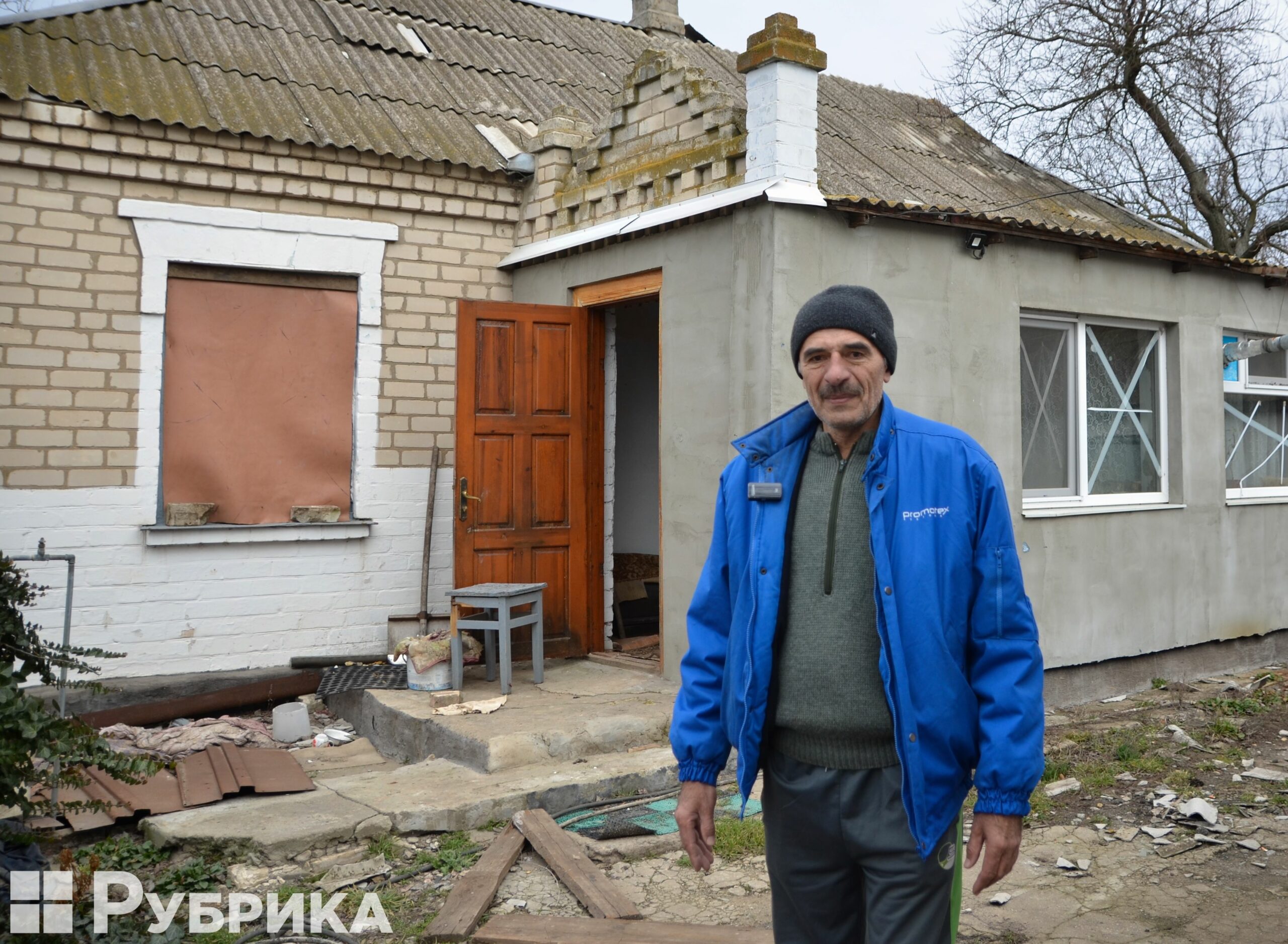
Mykola Krysenko, a resident of Blahodatne, returned home to repair the roof of his house.
Mykola Krysenko is a neighbor on the adjacent street. He was absent almost the entire period of the Blahodatne occupation. After two weeks in the basement in March of 2022, he and his wife left for Kherson, and from there, through the Zaporizhzhia region, escaped from the occupation.
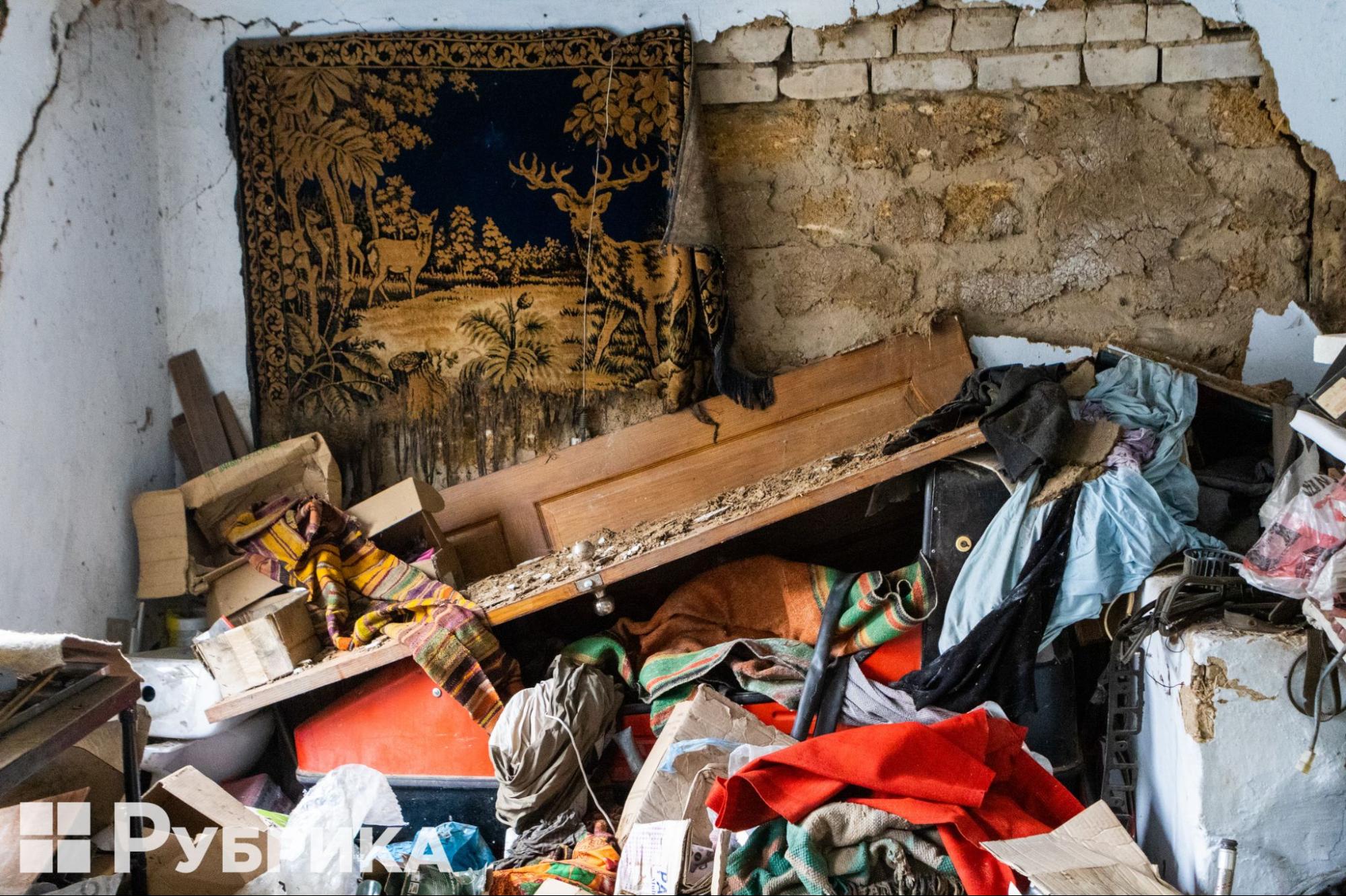
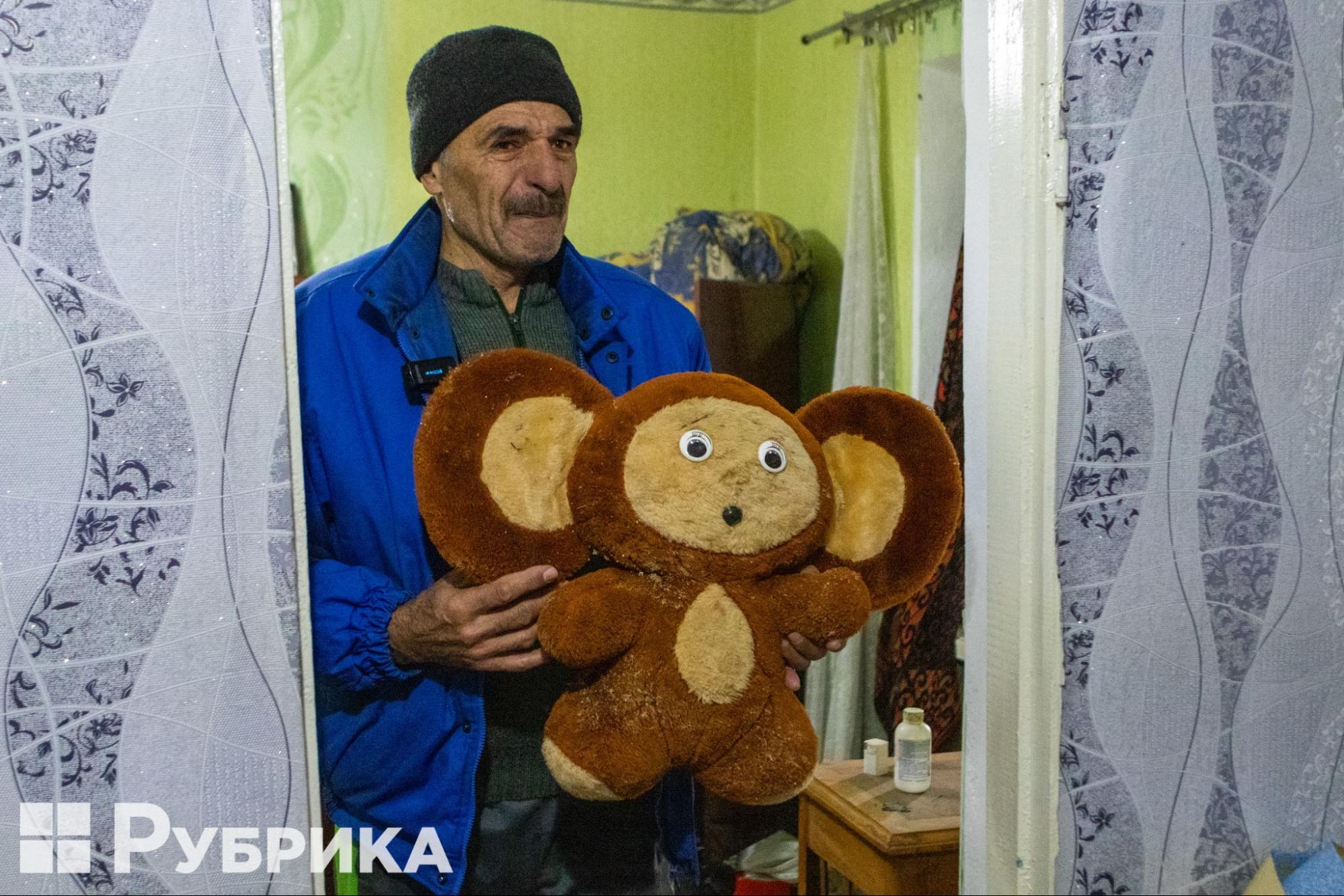
Krysenko's house was also destroyed.
A broken house, a ransacked yard awaited him in his native village, with a letter "Z" spraypainted on his gate left behind by russian vandals.
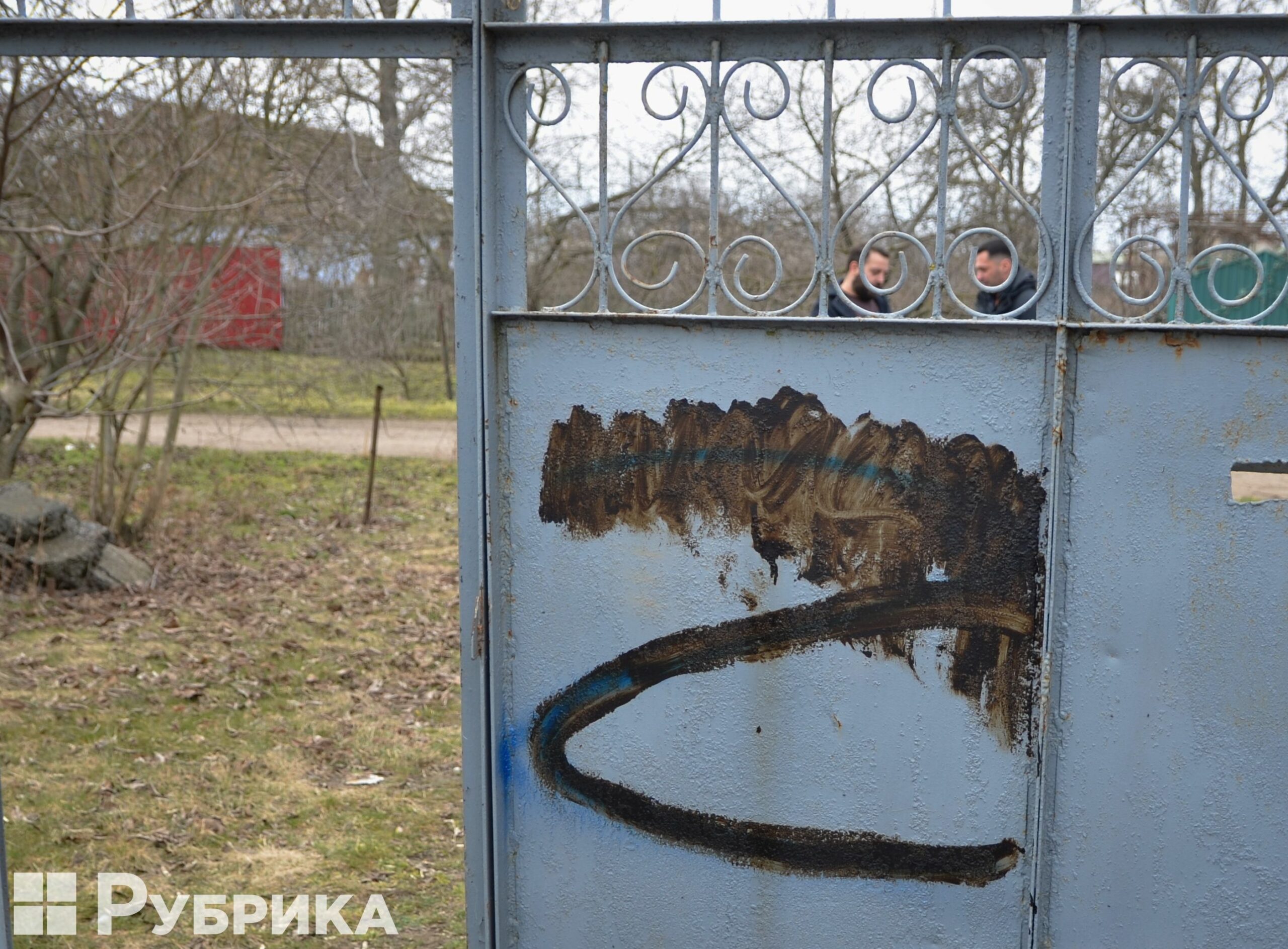
Krysenko says that both the occupiers and the locals looted their neighbors homes here – a point that hurts him to the point of tears. He shows a handwritten list of his property that was stolen — tools that would have helped him repair the house.
The leaking ceiling, damaged by shelling, has collapsed from the rain and snow.
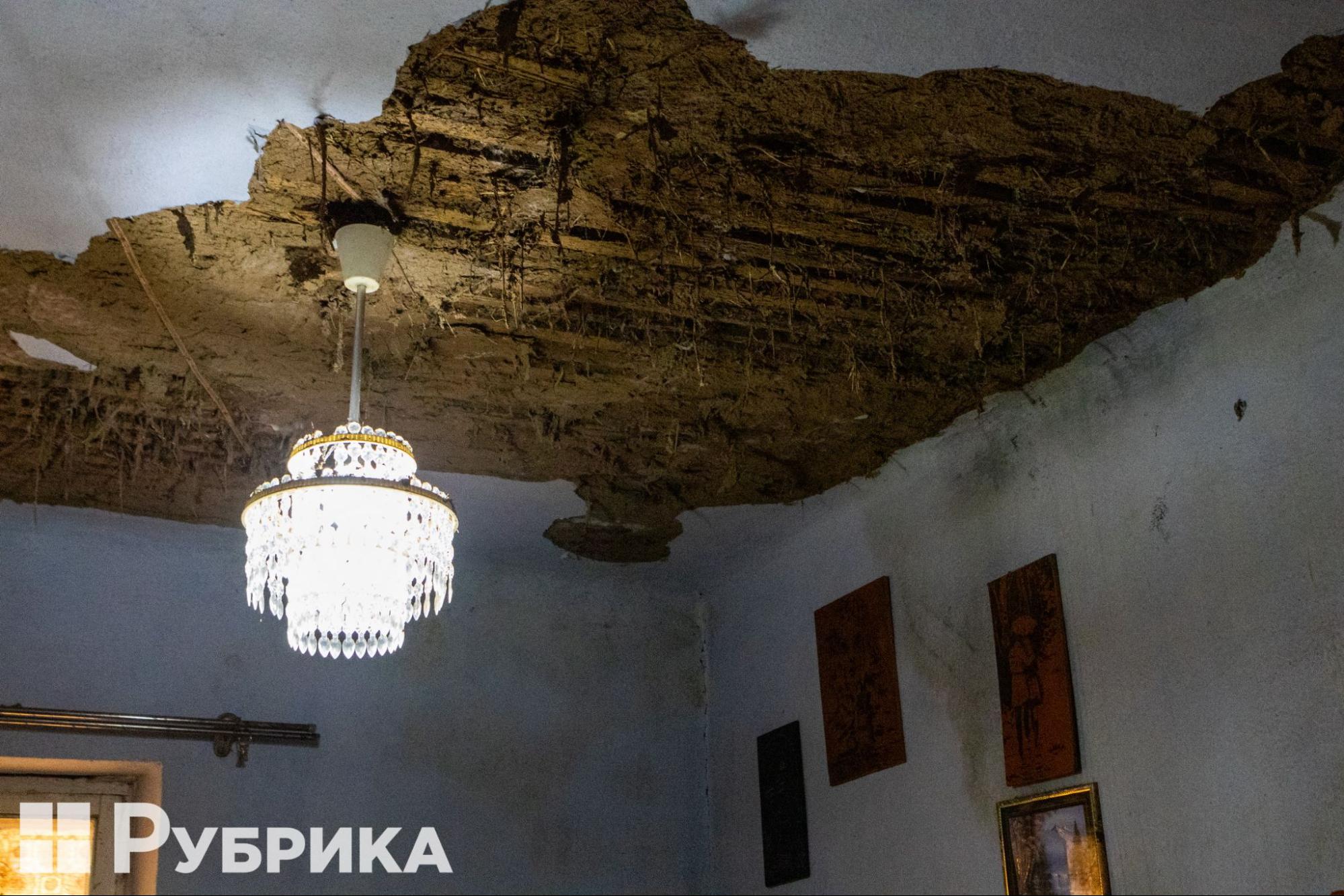
"What will I do? First, I will look for the materials in the village council; maybe some people will help and clear all this garbage. We will survive. At least we will try," Krysenko told Rubryka's journalists. He gets emotional, wiping away tears when he thinks of the way the russian occupiers treated his town: "They even painted their signs here, thinking they would stay here forever. But it won't be that way. Ukraine will be here," Krysenko wipes away his tears, apologizing for being too emotional.
A word, warmly, said gives comfort – even to a cat
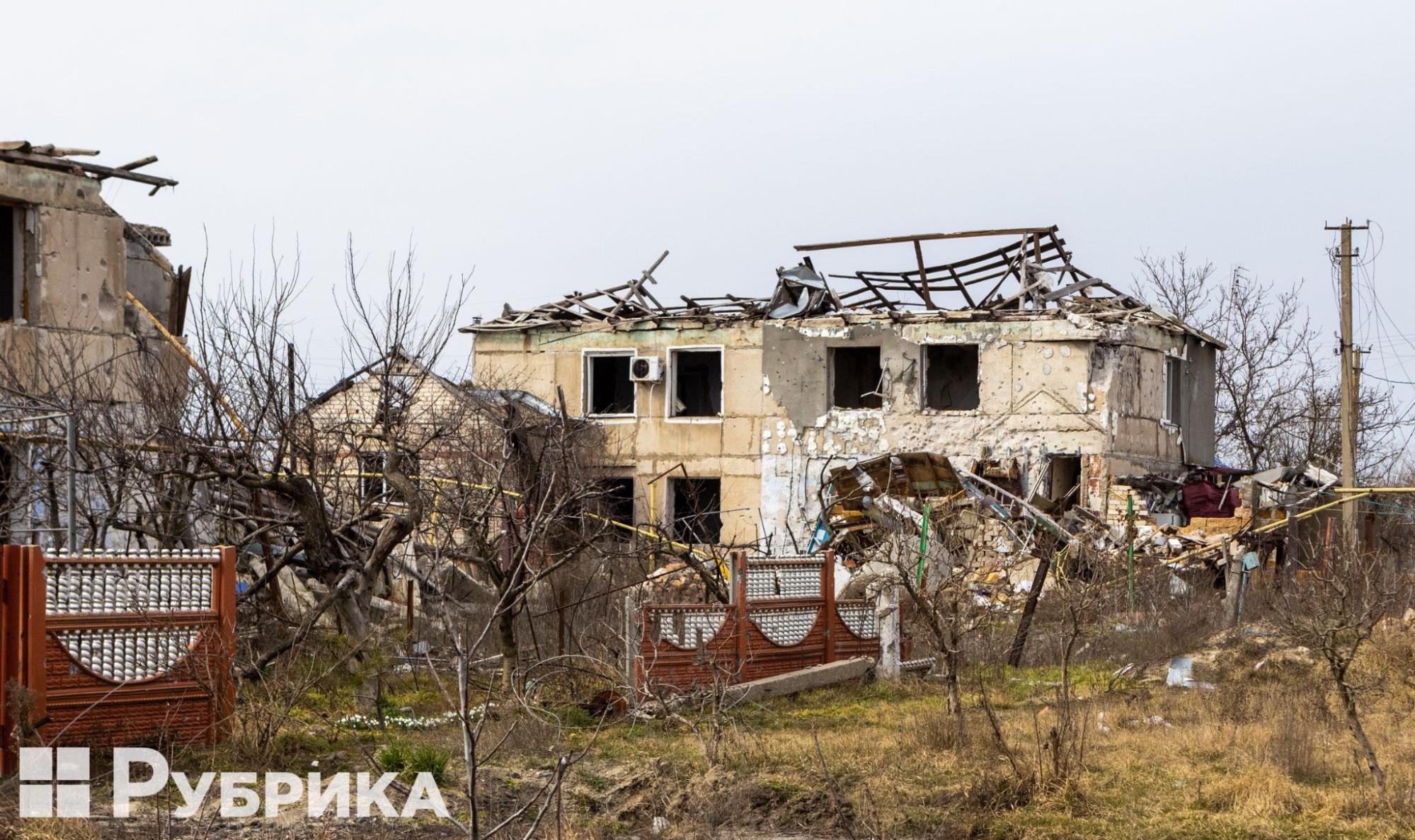
The situation is much more complicated in the village of Posad-Pokrovske, a few kilometers from Blahodatne. The once beautiful, prosperous village stands in ruins. Airstrikes destroyed its school, damaged the village council building, and shattered hundreds of private homes.
Though they did not stop to keep an occupying force in this hamlet, inhabited by just 2,500 residents,, convoys of russian vehicles passed through on their failed attempt to reach Mykolaiv. However, in the following months of the war, until the liberation of the right bank of the Kherson region, Posad-Pokrovske was in the line of fire.
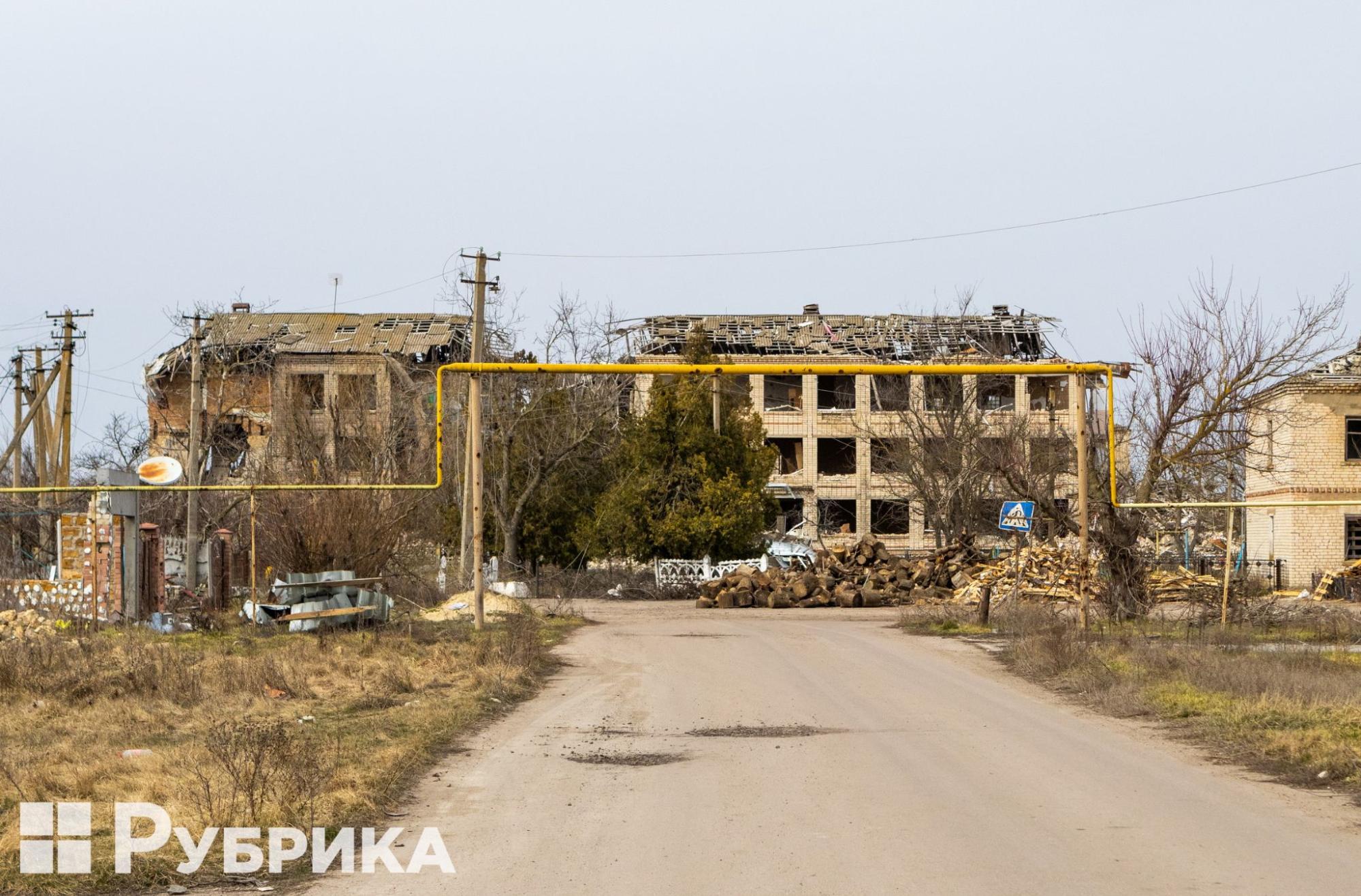
In the center of the village, where people gathered to receive humanitarian aid, we met with Serhii Kulakovsky, who performs the duties of the village council head. According to him, not a single household remains intact from among a thousand in Posad-Pokrovske. He estimates that several hundred cannot be restored at all. Six villagers died during the hostilities.
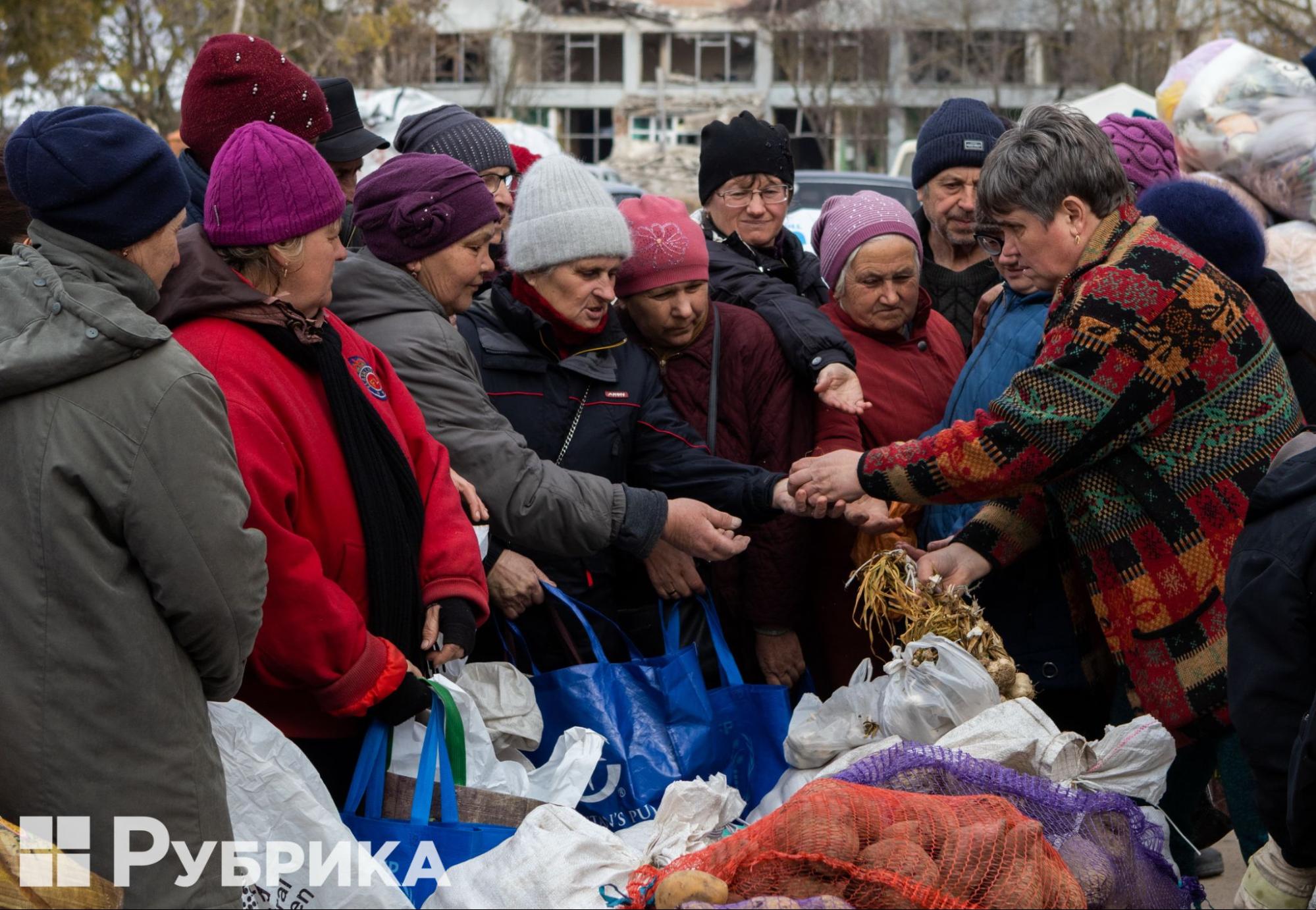
Today, however, says Kulakovsky, people are gradually returning so they can start rebuilding. International organizations like the Red Cross and several volunteer groups actively provide support for the village. The residents of Posad-Pokrovske unite around the idea of restoration. Even if the house is unlivable, people live with their neighbors, and they help them.
Chaplain Mykola Lytvynenko cooperates with the NGO Young – Initiative to restore destroyed homes and works with the Chornobayiv community, in which Posad-Pokrovske was the most affected.
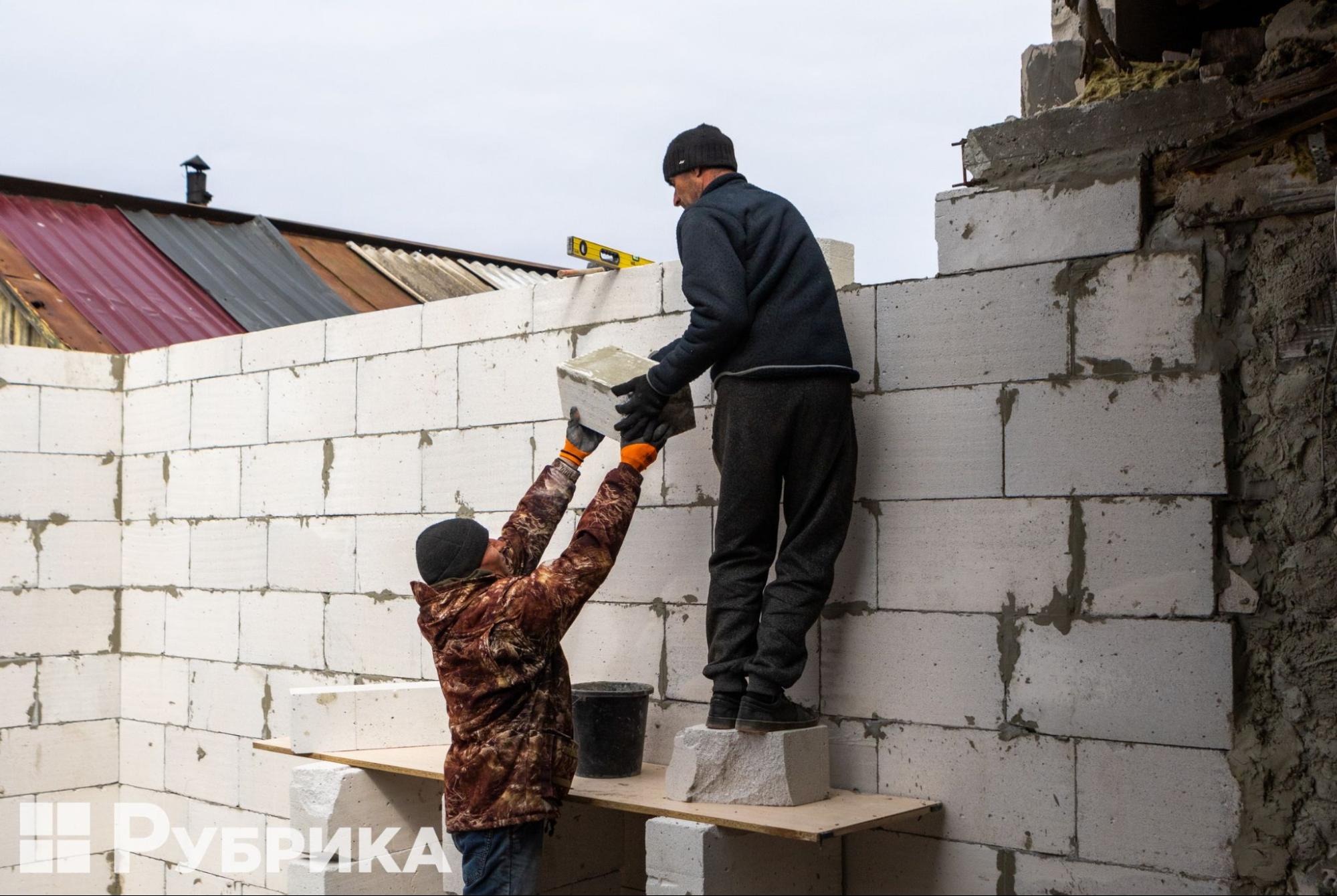
"As one woman told me: 'a word, warmly said, gives comfort – even to a cat.' This means you need to talk to people, listen to them, and see what is needed. For many, this is moral support and, of course, building materials," Lytvynenko told Rubryka.
"So far, we have helped only a few because the destruction is colossal," she continues. People are starting to come back and see that in addition to the damage from the war, the weather has already caused many problems. "Many people have a mental disorder after what they have seen."
Instead of kayaks, there is a minefield
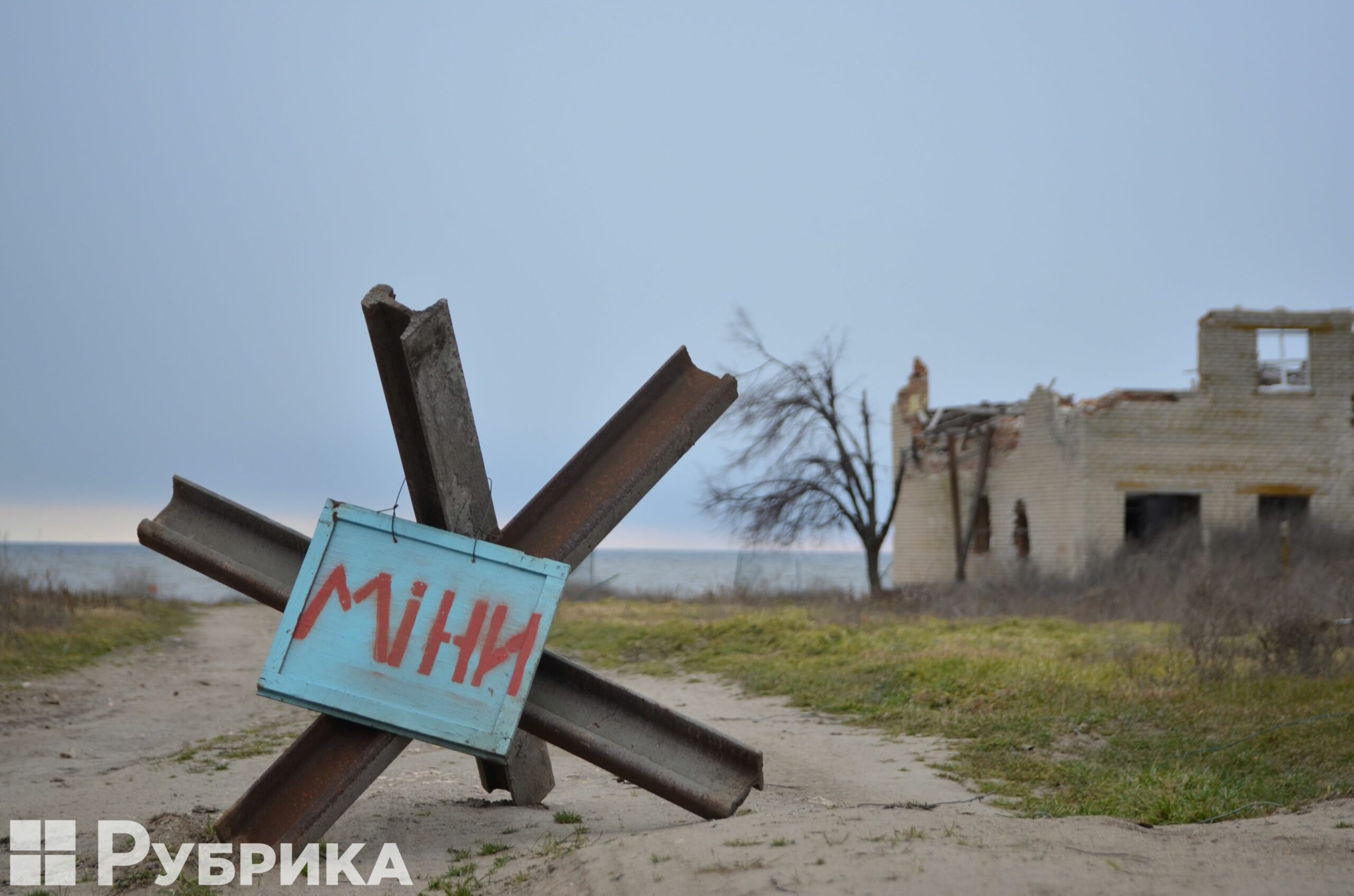
Anti-tank hedgehog with a sign "Mines," warns about potential danger in Oleksandrivka embankment
Another bruise on the map of Ukraine and the Kherson region is Oleksandrivka. In the spring and summer of 2022, fierce battles were ongoing, as the invading russian army tried to pass through this village located on the banks of the Dnieper–Bug estuary, outside the city of Mykolaiv. In the end, although it suffered losses the Ukrainian military did not allow the russians to advance further.
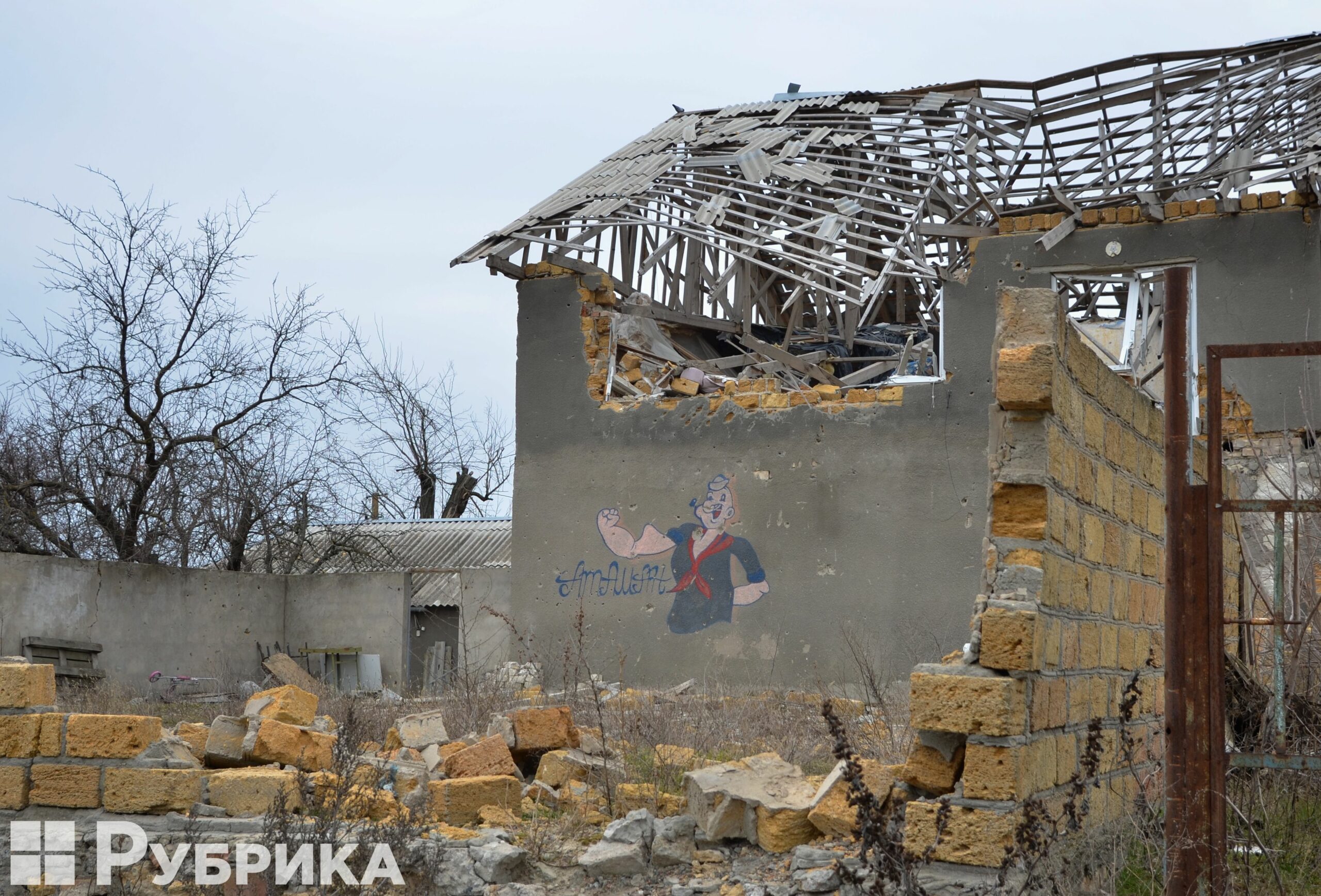
A house destroyed by the russians in Oleksandrivka
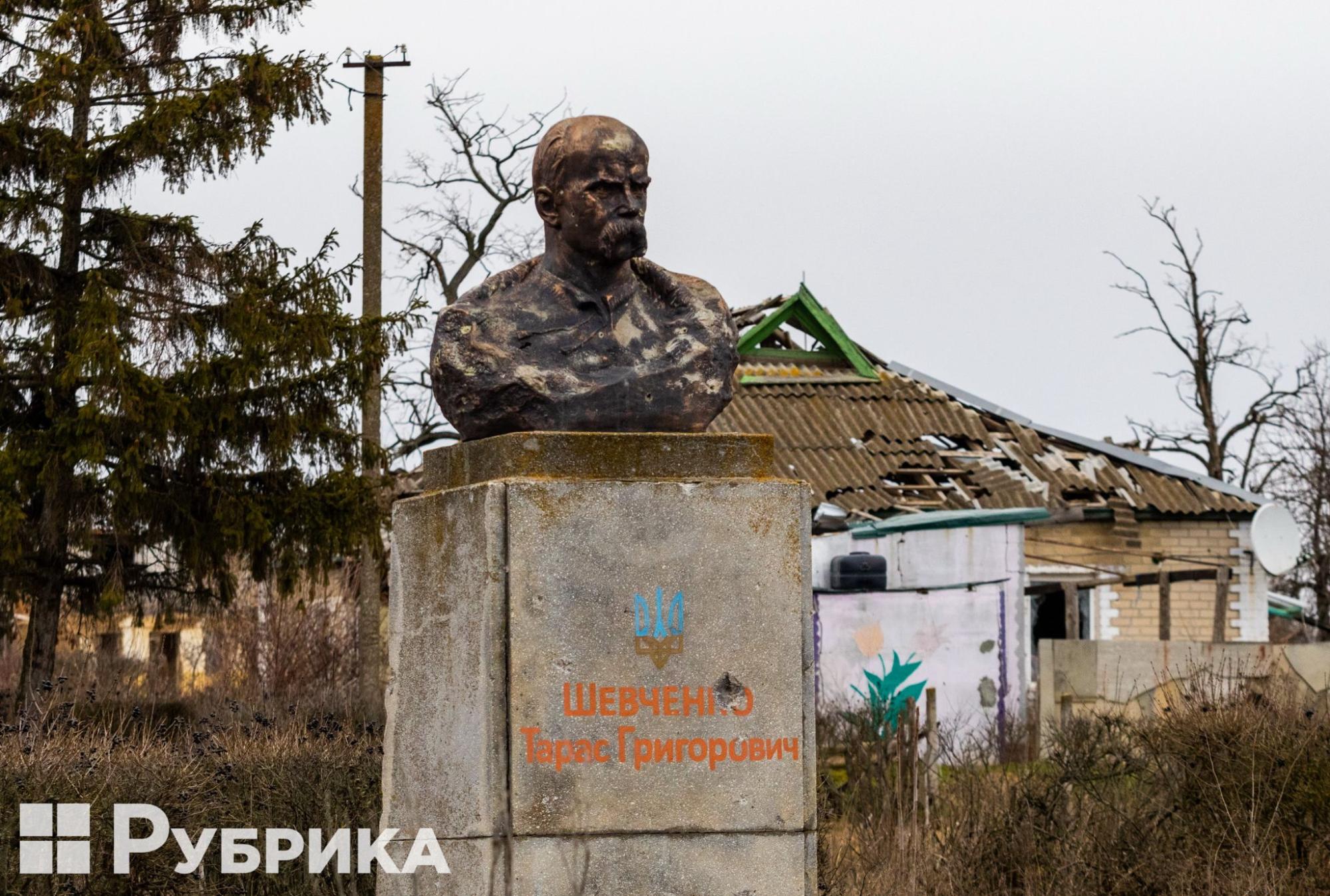
The once picturesque and large village today horrifies with its wounds. Instead of kayaks on the estuary, there are "hedgehogs" and the inscription "Mines," which block the entrance to the coast.
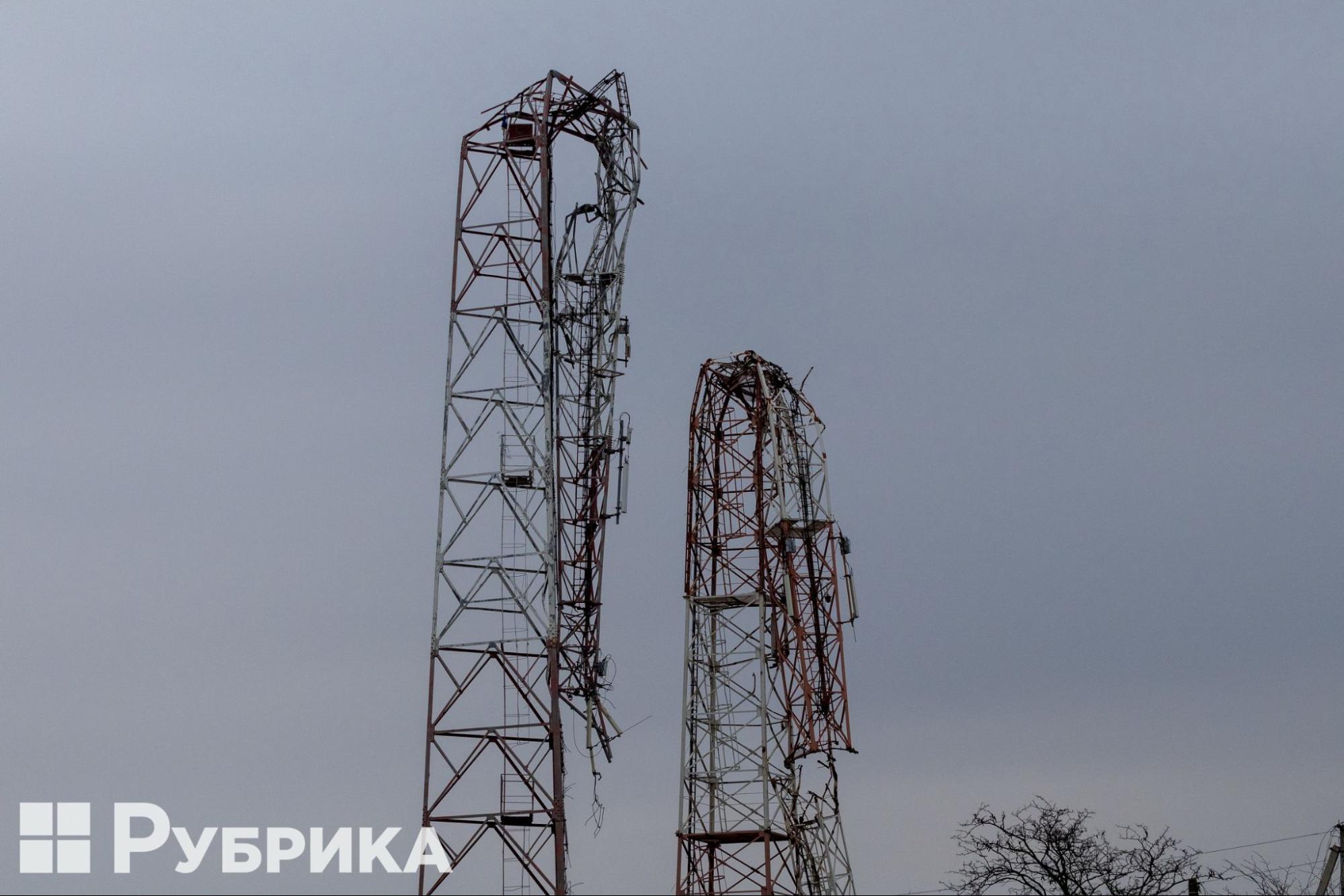
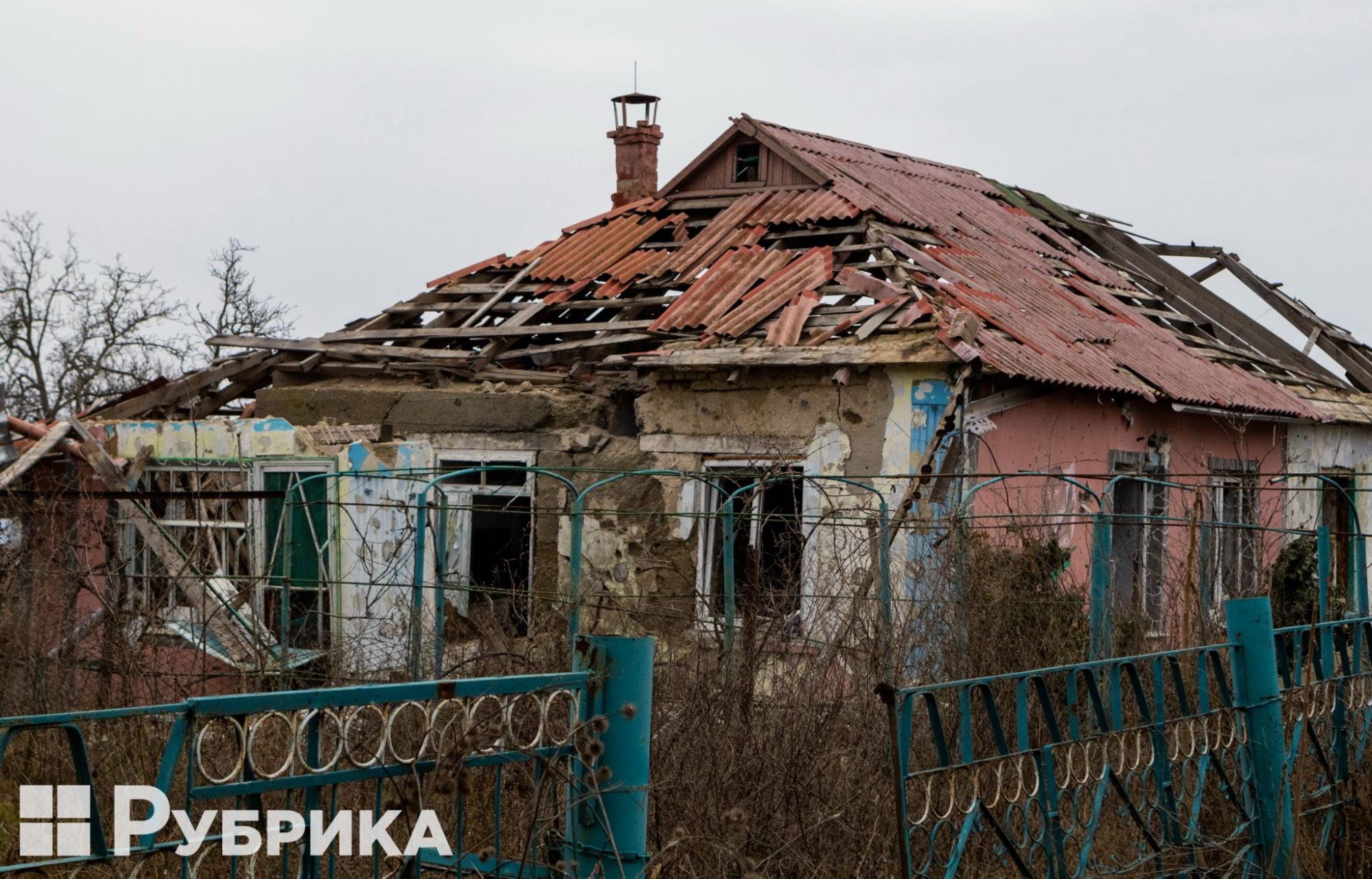
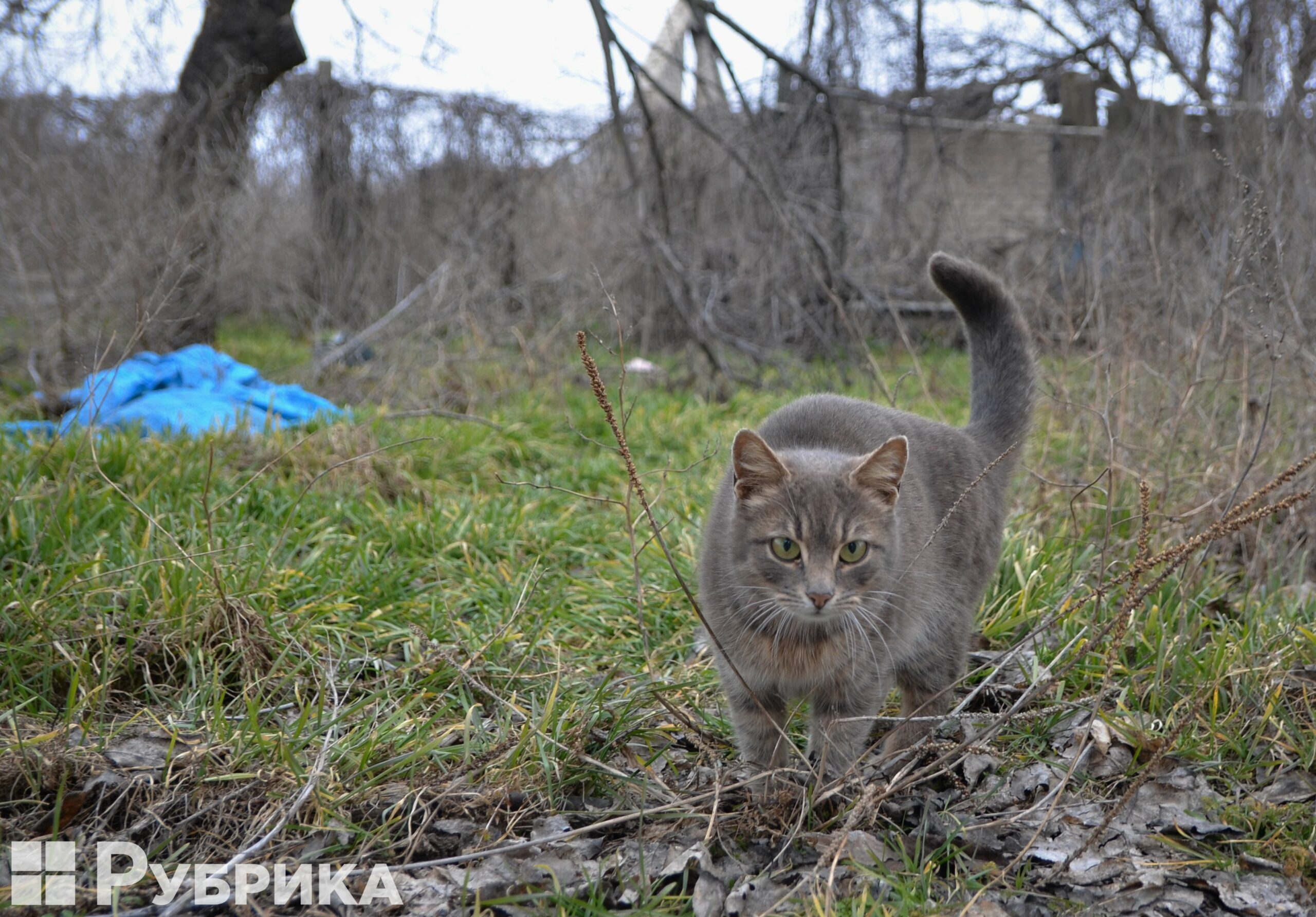
There is a Point of Invincibility in the Oleksandrivka Village Council where the government provides a gathering point with warmth and electricity, where volunteers, communal services, and even children come to study online because Starlink provides Internet access.
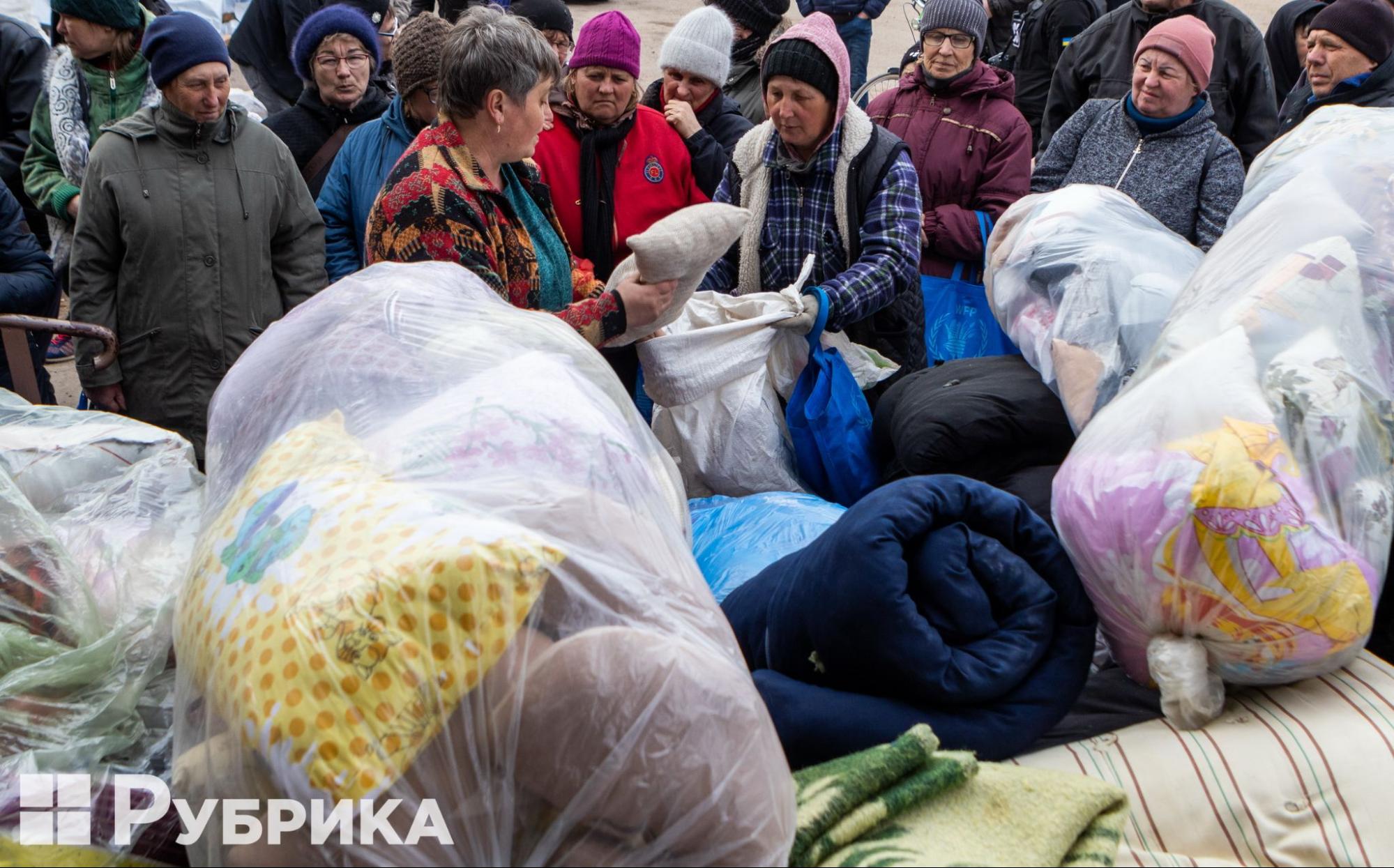
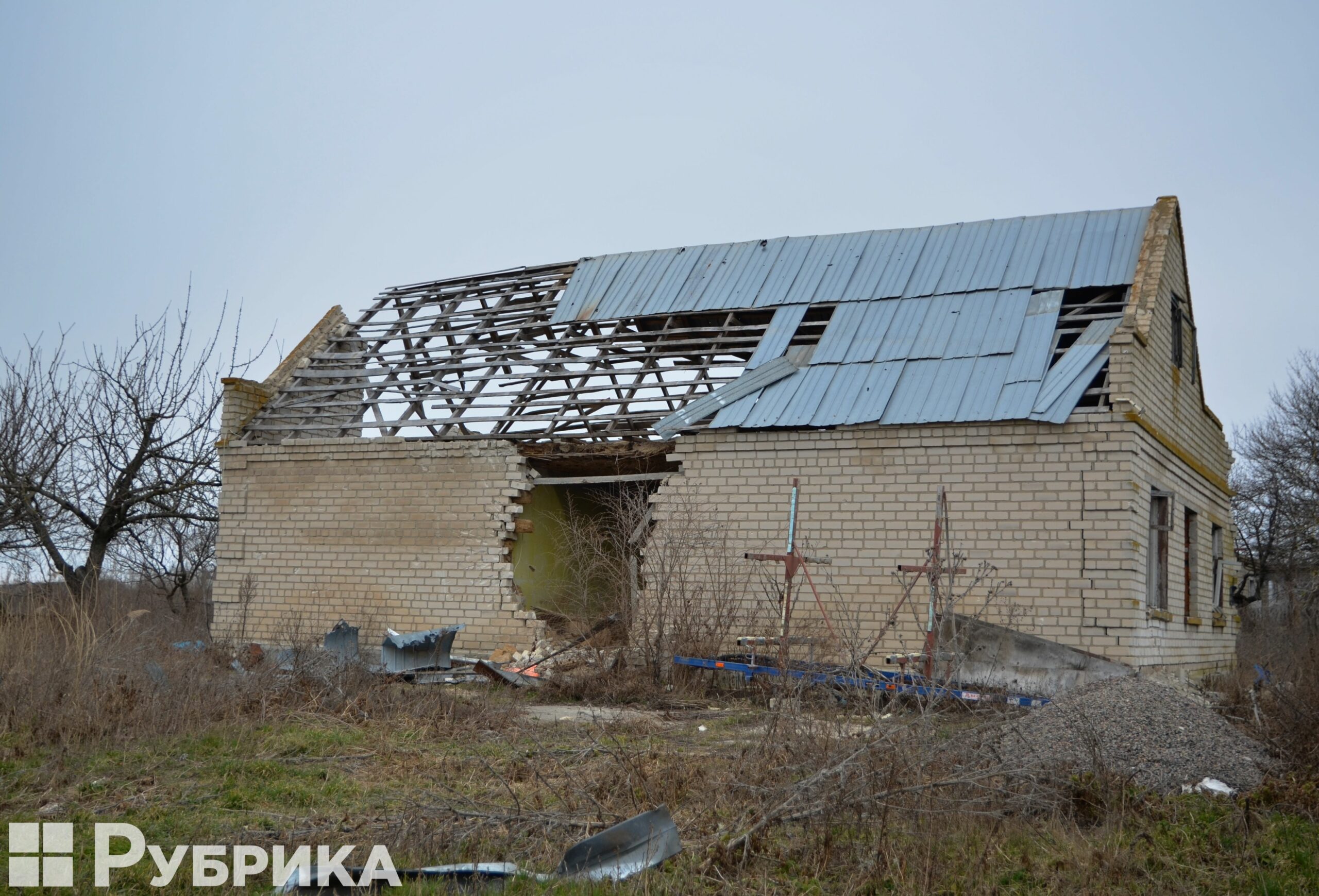
Despite the near-total destruction, families also return to Oleksandrivka with their children. As of early March 6, 139 families, that is 237 people, had returned to the village – but everyone now faces the task of repairs. Almost every roof needs a major repair, even if the damage were minimal. Active conflict has now stabilized, but the village remains without water and electricity, and only 35 houses are connected to gas.
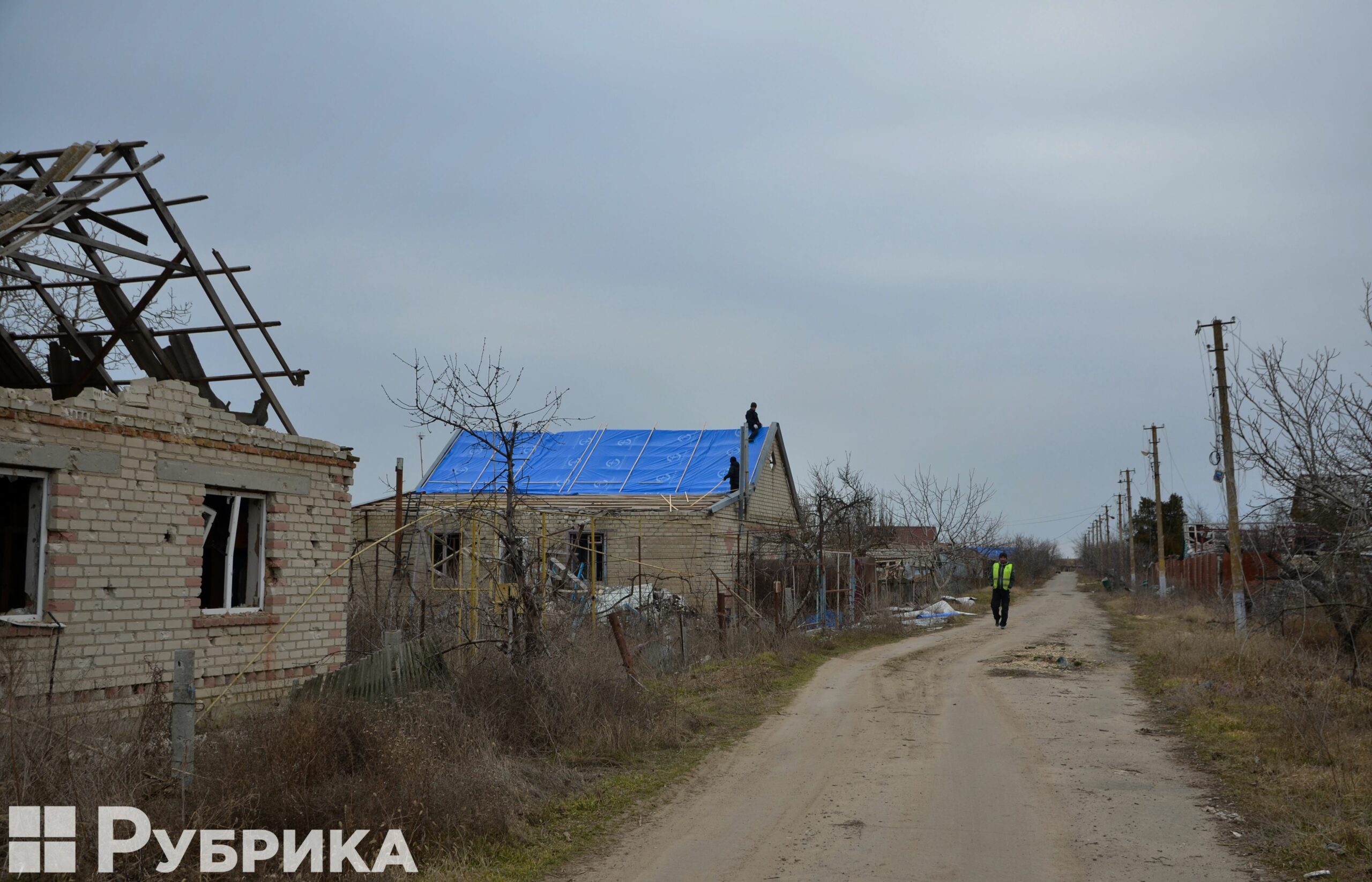
Residents managed to cover some houses in the Oleksandrivka village. However, most remain destroyed and unprotected from the weather
"We have an industrial generator to start the water supply, but the networks are badly damaged," village head Nataliia Kamenetska describes the situation in the village.
Kamenetska confirms that about 95% of the houses have medium or significant damage. The school, cultural center, and library were completely destroyed. The urgent care center and the kindergarten were also severely affected.
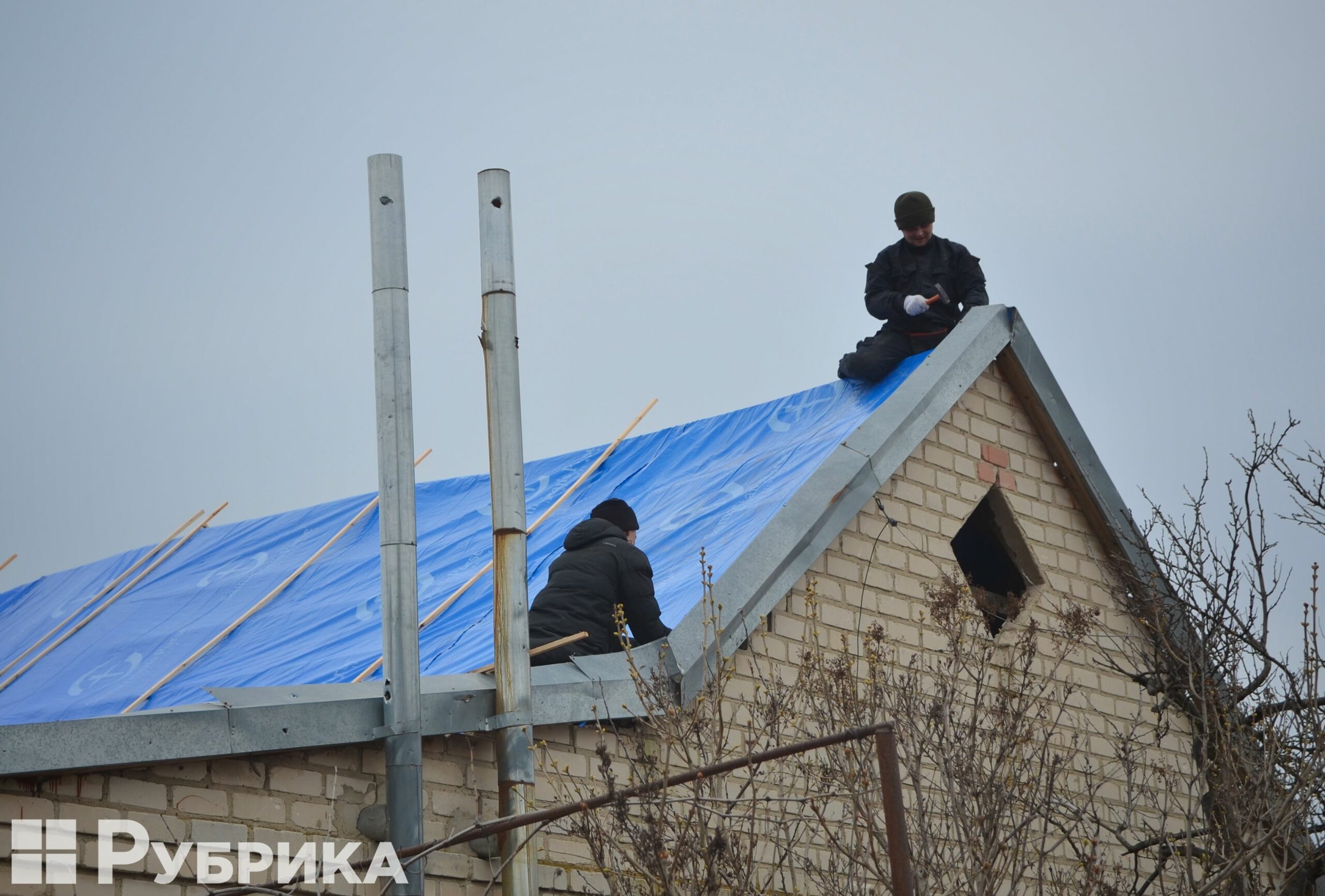
Volunteers from Mykolaiv help cover the roof of a house in the village of Oleksandrivka
An architect works in Stanislav, the community center, accepting applications from people and certifying damage reports. Technicians have already examined more than three hundred houses for damage,but it is unknown when people will be able to expect compensation.
Charitable foundations "Schedryk," "Prolisok," "Young – Initiative," and "April 10″ are helping the recovery effort. "A group of volunteers from the Rivne region helped overhaul five houses' roofs. We are incredibly grateful to them," says Kamenetska.
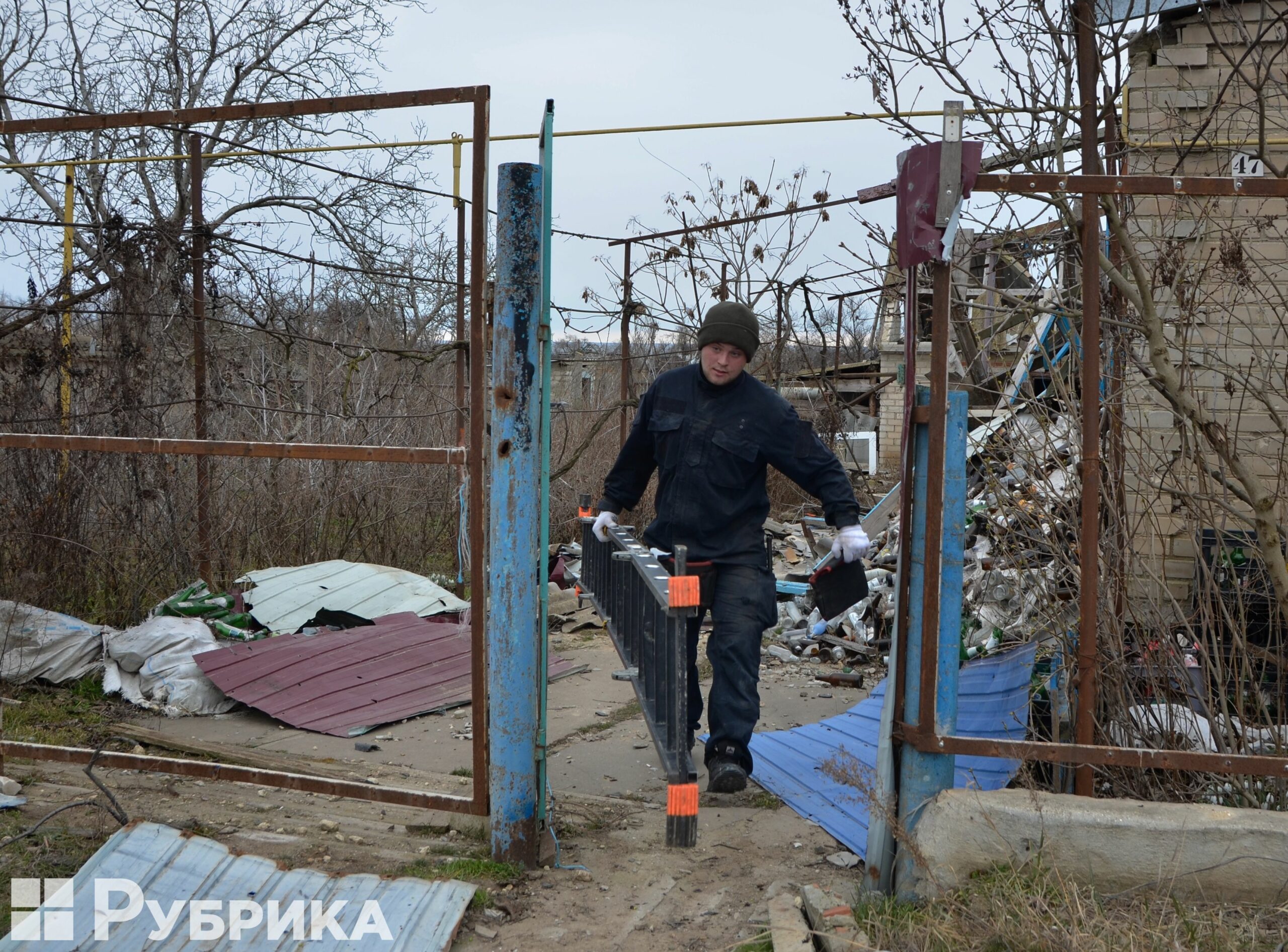
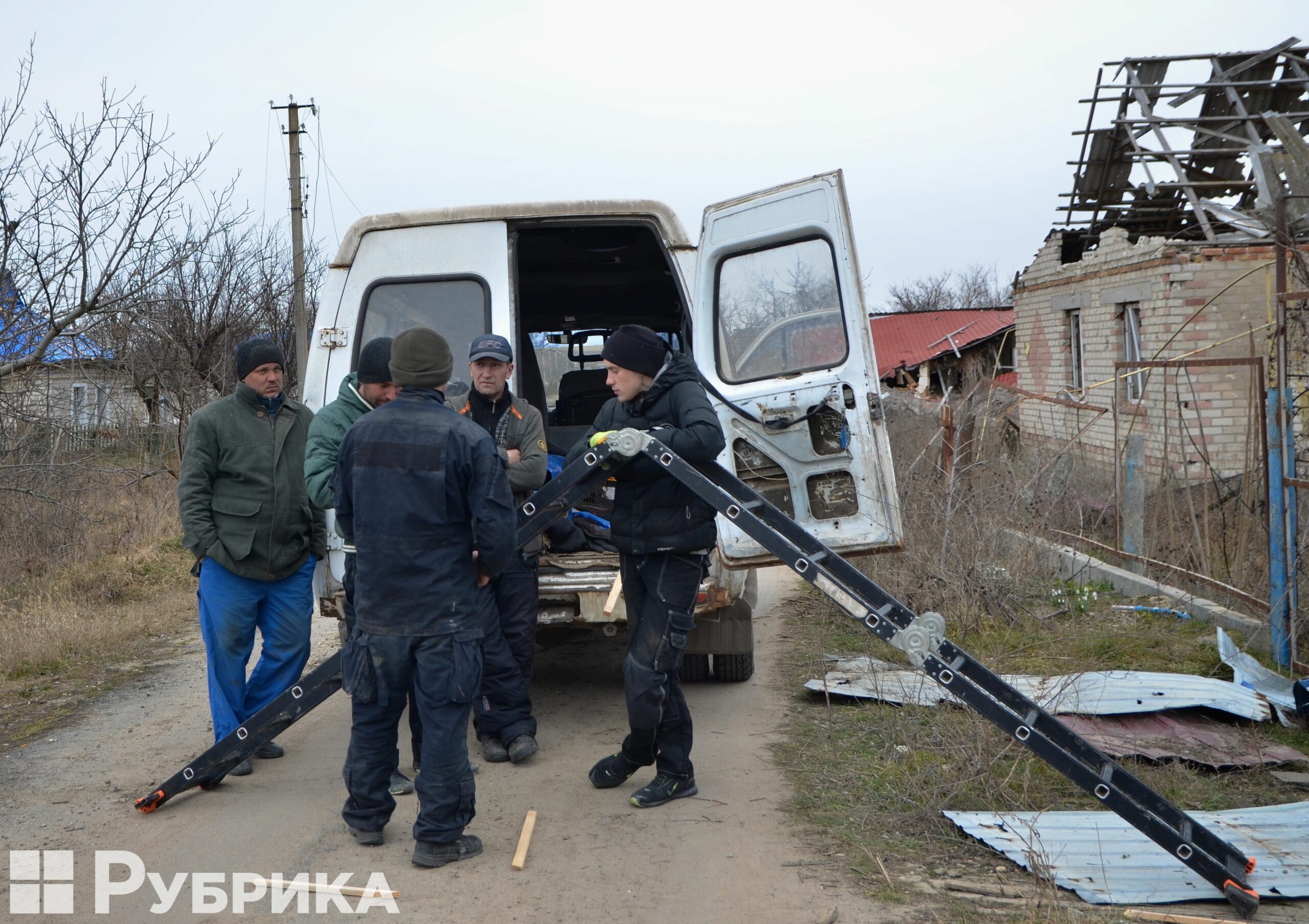
Mykola, a volunteer from Mykolaiv, says they came here because they know the village has suffered a lot.
"People turn to us for help. It is impossible to restore everything at once, but little by little, house by house, together, we will overcome it," says the volunteer, putting up a ladder and readying the tools. "It is a little scary because there is still shelling here sometimes. But working like this is not difficult because we know we are doing a good thing."
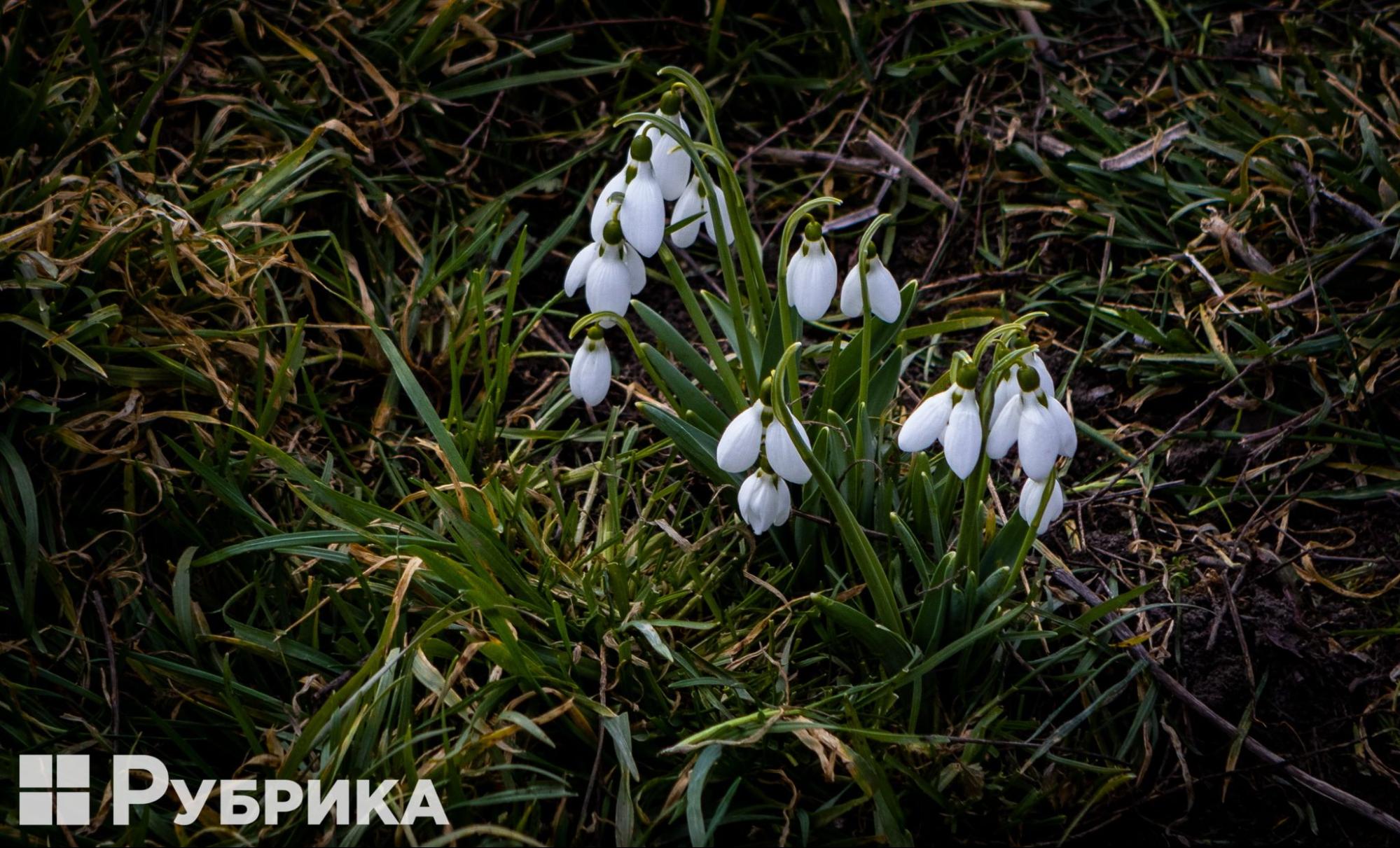
Despite everything, spring is coming with snowdrops in Posad-Pokrovske.
Photos: Ivan Antypenko, Mykola Tymchenko



